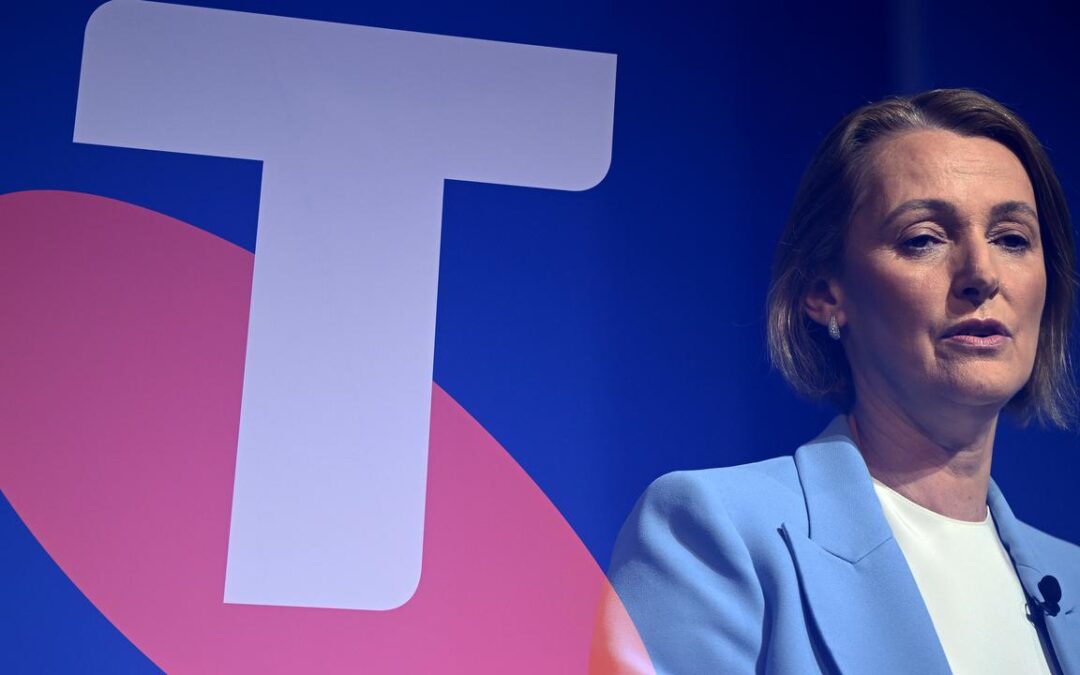
Price hikes, job cuts push telco’s modest profit lift
Telstra’s share price has slipped more than two per cent despite a surge in annual profit, as a closer look at the books cuts a less impressive figure.
Telstra reported a bottom-line net profit of $2.3 billion for 2024/25, up 31 per cent from $1.8 billion in the previous financial year, when the telco took a more-than $715 million hit from restructuring costs in its enterprise business.
Underlying earnings rose almost five per cent to $8.6 billion, which was within its guidance range.
“We delivered our fourth consecutive year of underlying growth, reflecting momentum across our business, strong cost control and disciplined capital management,” chief executive Vicki Brady said in a statement.
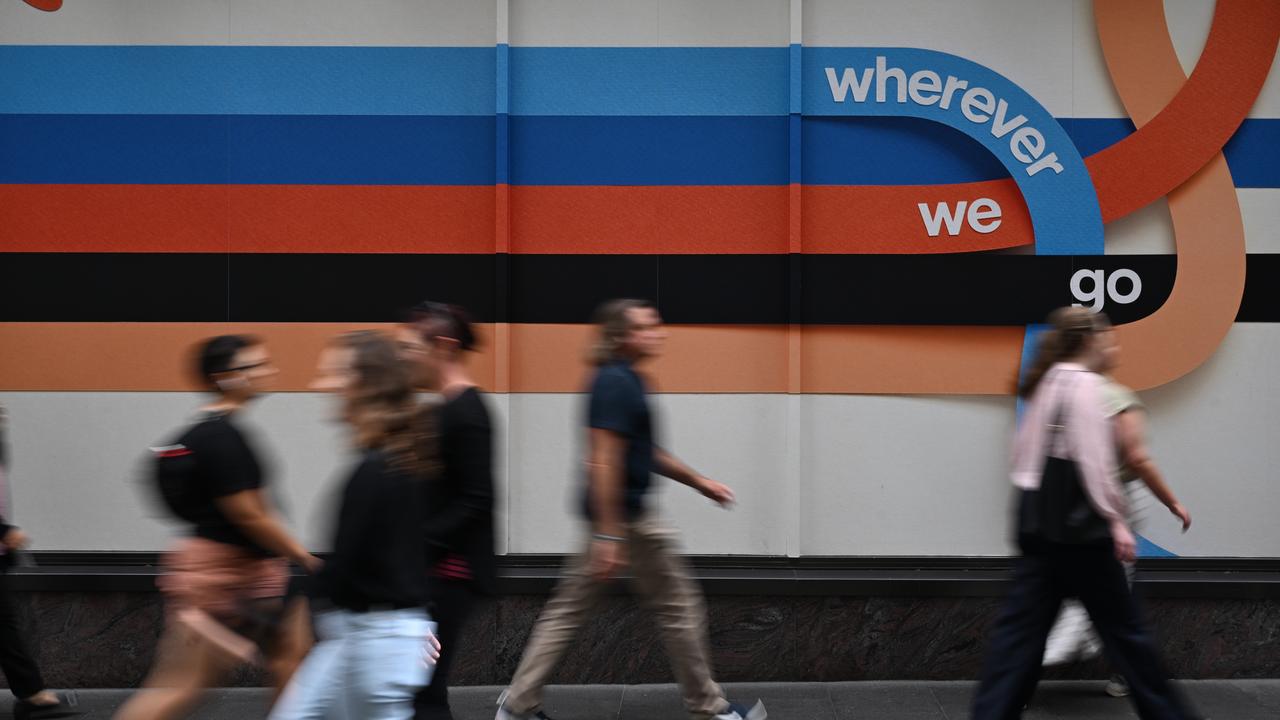
Telstra’s mobile business drove most of the profit result, after generating revenue growth of 3.5 per cent, following price hikes on mobile and internet plans between $2 and $4 per month in August 2024.
Customers faced further mark-ups of between $3 and $5 from July 2025.
The earnings report also noted a 0.3 per cent reduction in costs, thanks in part to job cuts of more than 3200 over the financial year.
Telstra’s boss has denied the cuts are related to the company’s growing adoption of artificial intelligence, but noted its workforce was changing.
“We recognise this kind of change can be disruptive, even distressing,” Ms Brady and chair Craig Dunn wrote in a message to investors.
“While we will need to continue to evolve, our commitment is to always be transparent, consult with our people and act with care once we are clear on specific changes we propose making.”
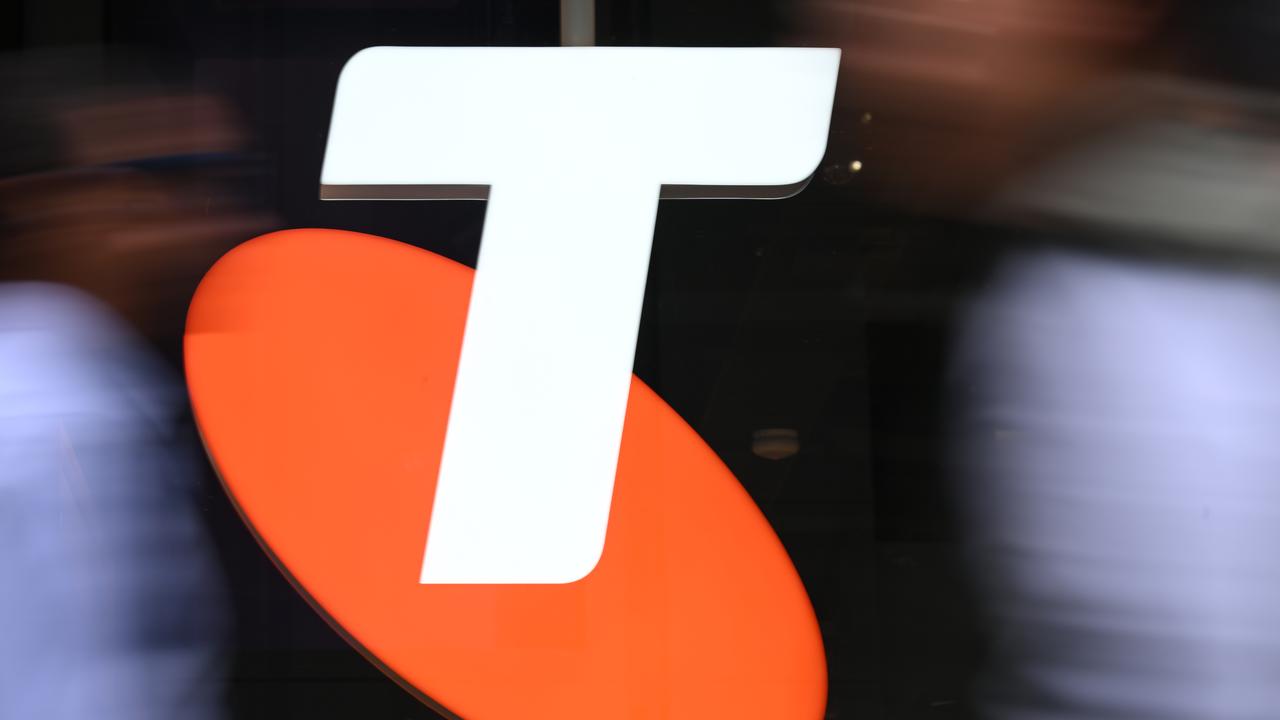
More than 20,000 Telstra employees had completed at least one course at the company’s AI academy, and teams were considering how to implement AI in every job at the telco.
“We’re pushing hard in terms of how we apply AI and adopt it, and that starts with our people,” Ms Brady told shareholders at an earnings call.
“It absolutely starts with skilling.”
The use of the technology to achieve autonomous or “self-healing” networks was also a key goal, and the group’s Smartfix application had taken 1.5 million proactive network actions in 2024.
“That meant customers got a more resilient experience than they previously had on their service,” Ms Brady said.
Alongside the earnings announcement, Telstra announced a majority sale of its cloud computing business Versent to Indian tech giant Infosys, deepening a collaboration that began in 2024.
“By combining the strengths of our three businesses, we’re creating a unique proposition that will help Australian enterprises grow and innovate in today’s fast-moving, AI-driven digital landscape,” Telstra Enterprise group executive Oliver Camplin-Warner said.
Telstra declared a final dividend of 9.5 cents, taking the total for the year to June 30 to 19 cents.
It also announced an on-market share buyback worth up to $1 billion as a reward to shareholders.
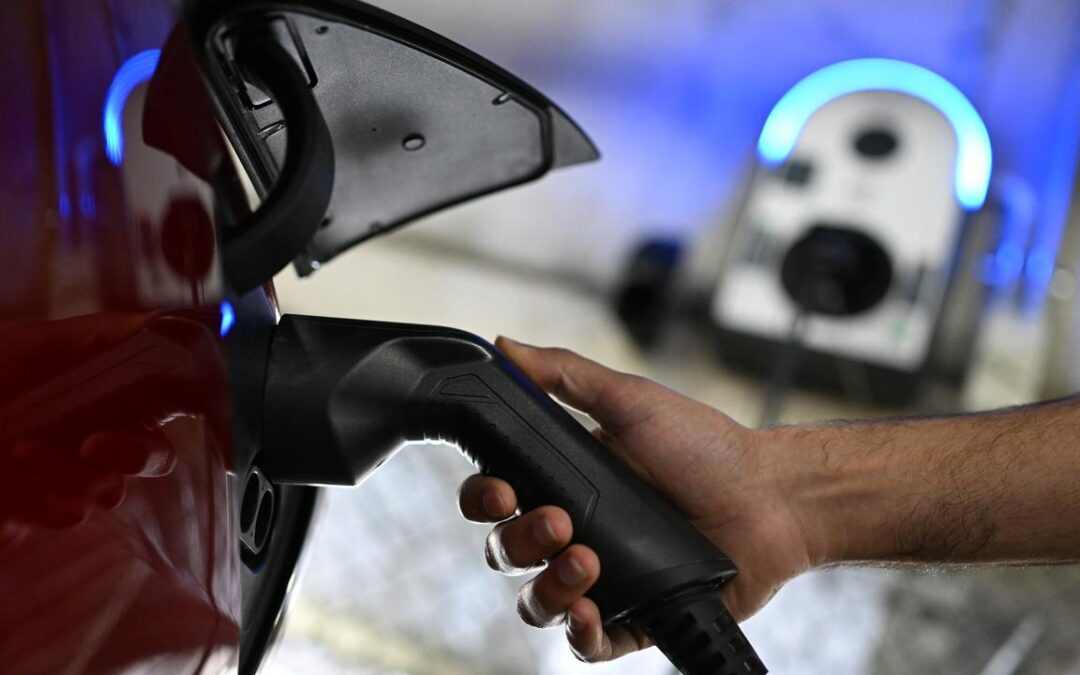
EV industry powers down tax talk amid surging sales
Electric vehicle sales have surged to record highs, but advocates warn it shouldn’t be used as an excuse to impose taxes and cut incentives.
Australians bought 29,244 new battery electric vehicles in the three months to June 30, up from 17,901 sales in the March quarter.
It was a 63.37 per cent sales increase, with electric vehicles climbing from 6.29 per cent to 9.31 per cent of all new car sales in the June quarter, according to the Australian Automobile Association.
The sales surge comes as momentum builds for a road user charge to fund maintenance as more people switch to electric vehicles and the fuel excise falls.
But the Electric Vehicle Council says the result was short of what’s needed for a self-sustaining market, and the federal government should not withdraw incentives or impose taxes.
“We’re still in the early stages of the transition,” chief executive Julie Delvecchio said.
“Electric vehicles need to make up at least 30 per cent of all new car sales in Australia before governments can responsibly consider withdrawing incentives or imposing taxes.”
The Productivity Commission recently recommended phasing out the Commonwealth Fringe Benefits Tax exemption for electric vehicles and imposing a road user charge.
But the council argued current policies and the tax incentive had fuelled growth in electric vehicle sales in recent years.
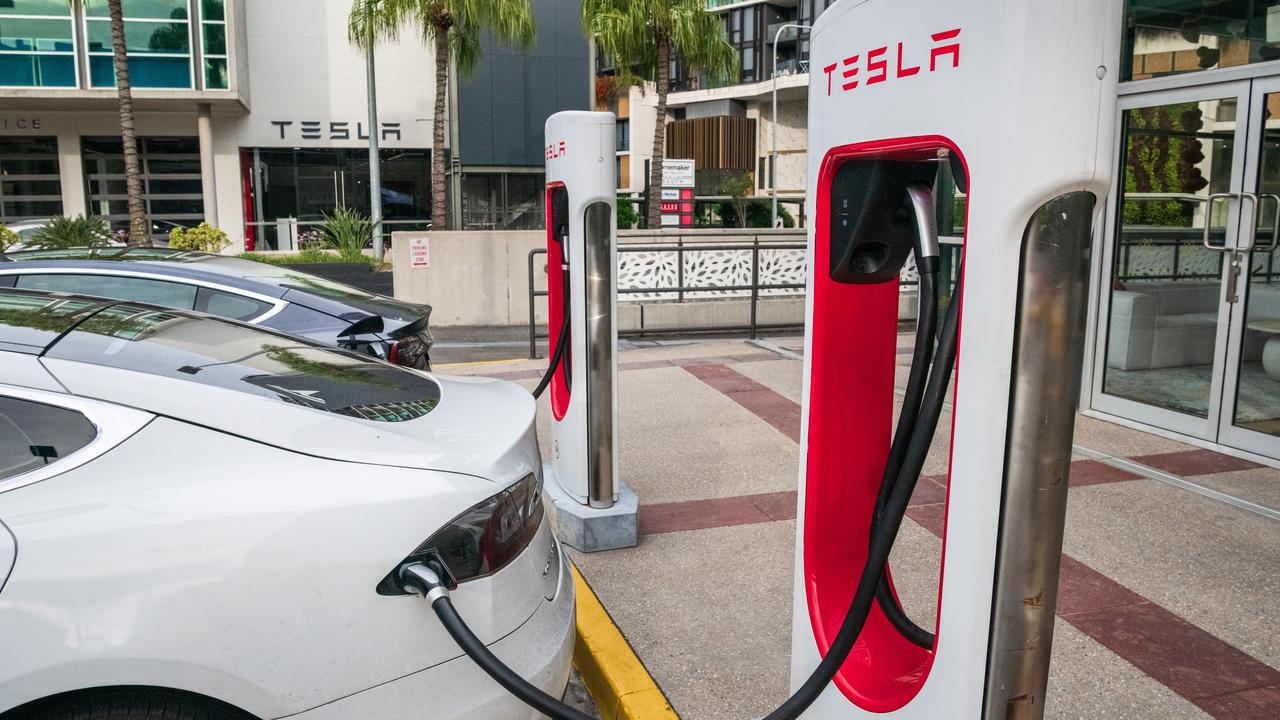
“These proposed changes will abruptly stall the shift to (electric vehicles), which benefit everyone through lower energy bills and cleaner air,” Ms Delvecchio said.
“With transport set to become Australia’s largest emissions source by 2030, it’s essential to keep supporting and motivating Australians to choose electric vehicles.”
Treasurer Jim Chalmers says he is working with the states and territories on a possible road user charge, but has no time frame on the issue.
“The status quo on this won’t work in 10 or 20 years’ time because fewer people will be driving petrol cars and more people electric vehicles, and we still need to fund the roads,” he said on Wednesday.
“But people shouldn’t anticipate that there will be a change very soon.”
Total light vehicle sales were up 10.42 per cent in the June quarter
Internal combustion engine vehicles dominated overall sales, with 226,306 units sold, up 9.90 per cent from the March quarter total of 205,911.
But their market share fell slightly from 72.37 per cent to 72.03 per cent.
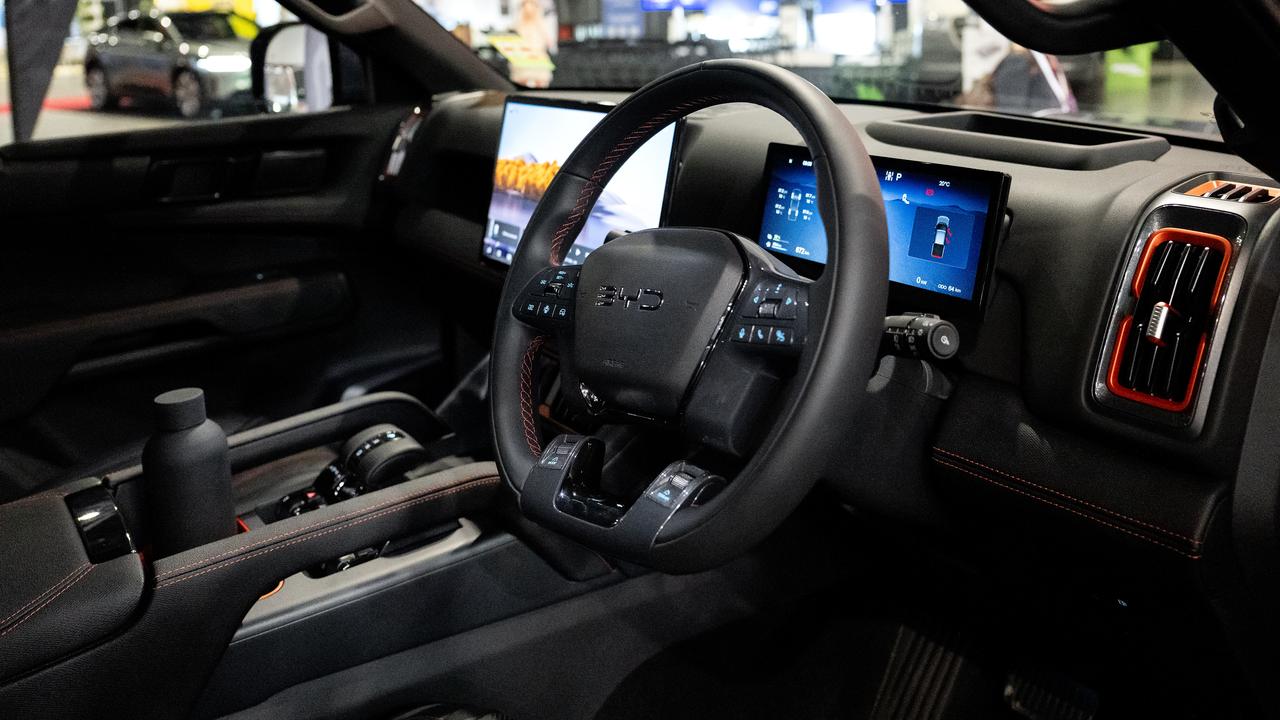
Combined battery electric and plug-in hybrid vehicle sales were 41,146 units, representing 13.1 per cent all new car sales for the June quarter.
They are up 37 per cent from the same time last year, when 30,028 battery electric and plug-in hybrid vehicles were sold, representing 9.59 per cent of sales.
Hybrid sales fell slightly, from 47,014 to 46,732, down 0.6 per cent.
The increased range of electric vehicles on the market, more affordable models and the growing number of charging options were boosting their appeal, NRMA spokesman Peter Khoury said.
“People are still in the market for new cars and they’ve just got more variety than we’ve ever had before,” he told AAP.
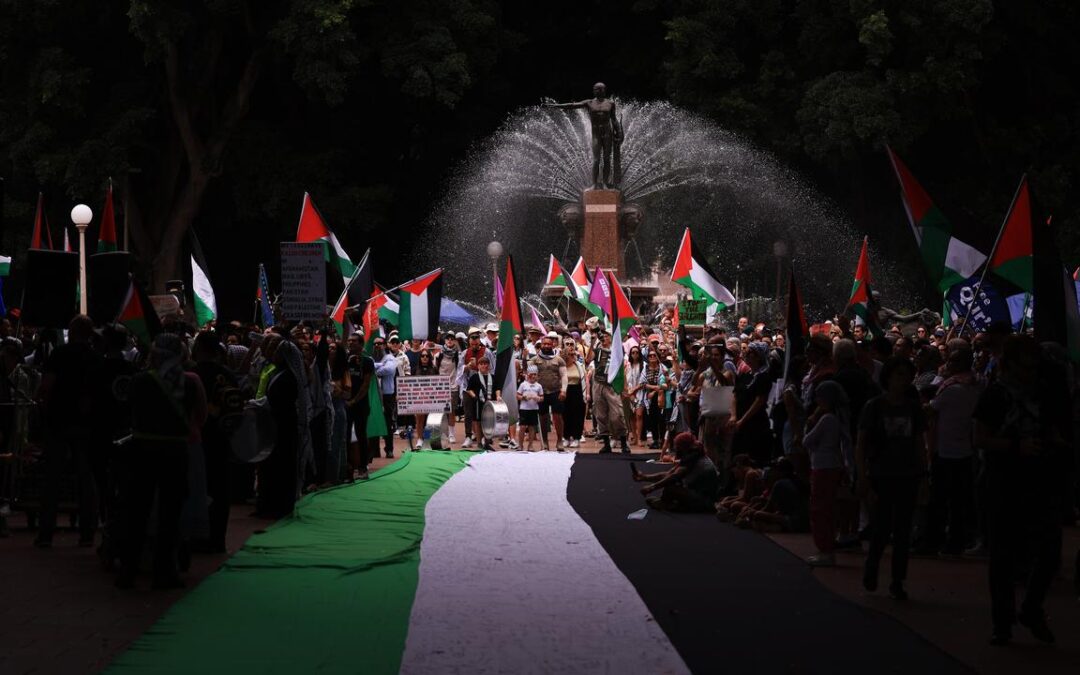
PM slams Hamas as senior leader denies praising him
The prime minister has pushed back against suggestions he is aiding Hamas by recognising Palestinian statehood as the terrorist group distances itself from a statement applauding Australia’s decision.
Labor’s “political courage” was reportedly commended by Hamas co-founder Hassan Yousef after Australia revealed it would join other nations in recognising Palestine at the United Nations General Assembly in September.
But the group’s foreign relations chief, Istanbul-based Basem Naim, poured cold water on the statement making headlines domestically.
“Sheikh Yousef is in an Israeli jail for years now,” Dr Naim told AAP.
“I’m very surprised … I doubt it’s true,” he said, referring to a statement first reported by Nine Newspapers.
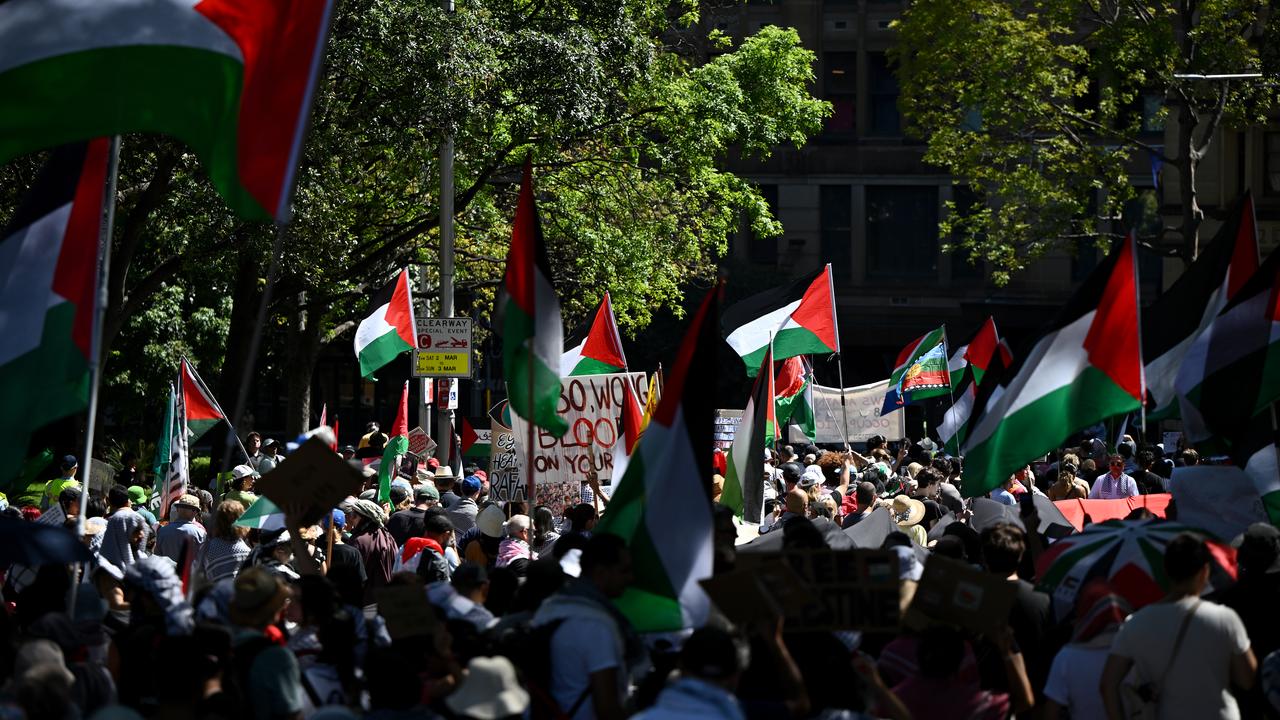
Nine clarified on Thursday it had solicited the statement from a spokesperson on Mr Yousef’s behalf, based in the West Bank.
Dr Naim instead referred to a statement the group disseminated on its social media channel and which the Australian prime minister also pointed to on Thursday.
“We affirm that Sheikh Hassan Yousef is being held in poor conditions and is cut off from the outside world, with no means of communication with local or international press outlets,” the statement said.
Mr Albanese warned his political opponents and the media not to engage with “Hamas propaganda”.
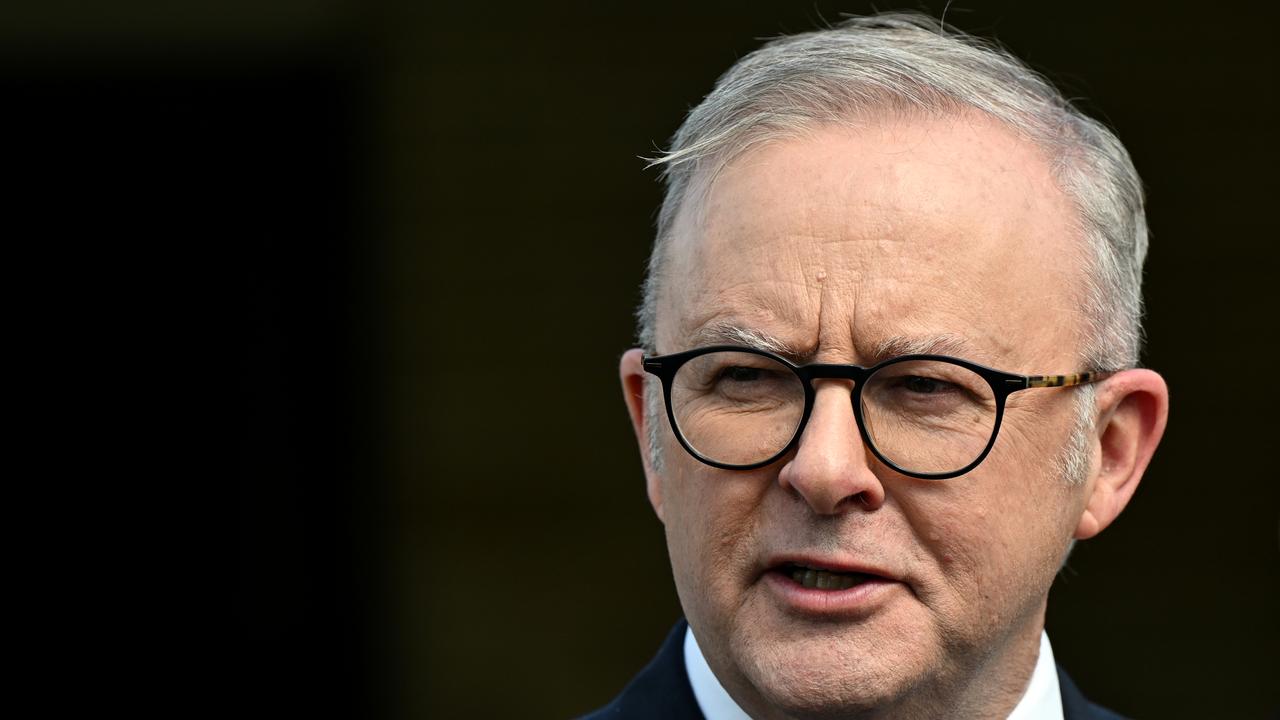
The prime minister – weighed down by headlines and commentary suggesting he was doing Hamas’s bidding in imminently backing a Palestinian state – said recognition would help isolate the designated terror group.
“What that should be is a warning to the media of being very careful about the fact that Hamas will engage in propaganda,” he told reporters.
“Hamas do not want a two-state solution – what they want is one state.
“I won’t be a cheer squad for Hamas.”
Dr Naim said efforts from “any party” to recognise Palestine were “very welcomed” but needed to be matched with practical actions.
Opponents of Australia’s recognition move, including the coalition, said the prime minister had got it wrong.
“(The prime minister) must reverse this decision, because when terrorists are cheerleaders for your foreign policy, you need to think again and reverse that position,” Opposition Leader Sussan Ley said.
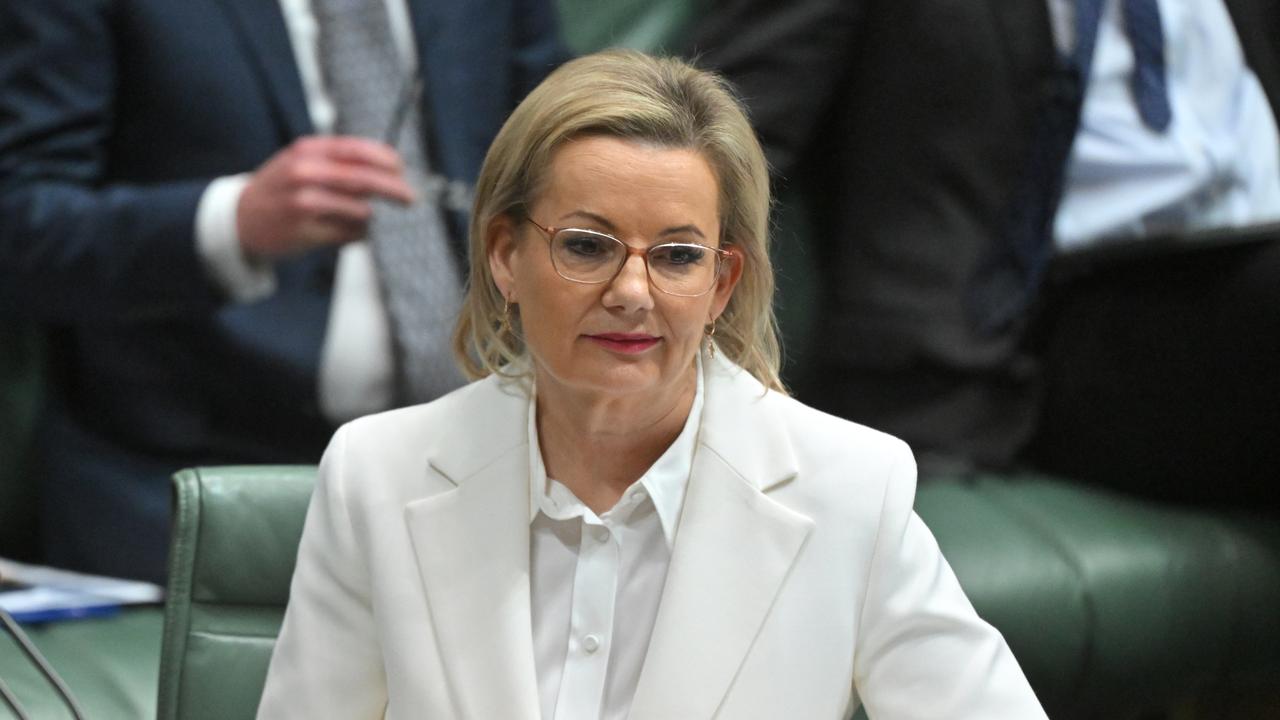
Almost 150 out of the 193 UN member states have already recognised the state of Palestine, including EU countries Spain and Ireland.
Opposition Israeli parliamentarian Shelly Tal Meron said she was also concerned about Hamas’s purported reaction.
Since October 2023, Israel has killed almost 62,000 Palestinians in Gaza, including 18,000 children, according to local health authorities, and its government on Friday approved plans to seize Gaza City.
Its bombardment and military action on the strip restarted when Hamas attacked Israel on October 7, 2023, killing 1200 people and taking about 250 hostage.
Israel’s government has also throttled aid and food into Gaza for months, and the UN projects 2.1 million people are facing high levels of acute food insecurity, while 470,000 are facing catastrophic levels of food insecurity.
Former Labor senator and left-faction heavyweight Doug Cameron said the government should do all it can to support a Palestinian state, including aiding reconstruction efforts when the conflict ends.
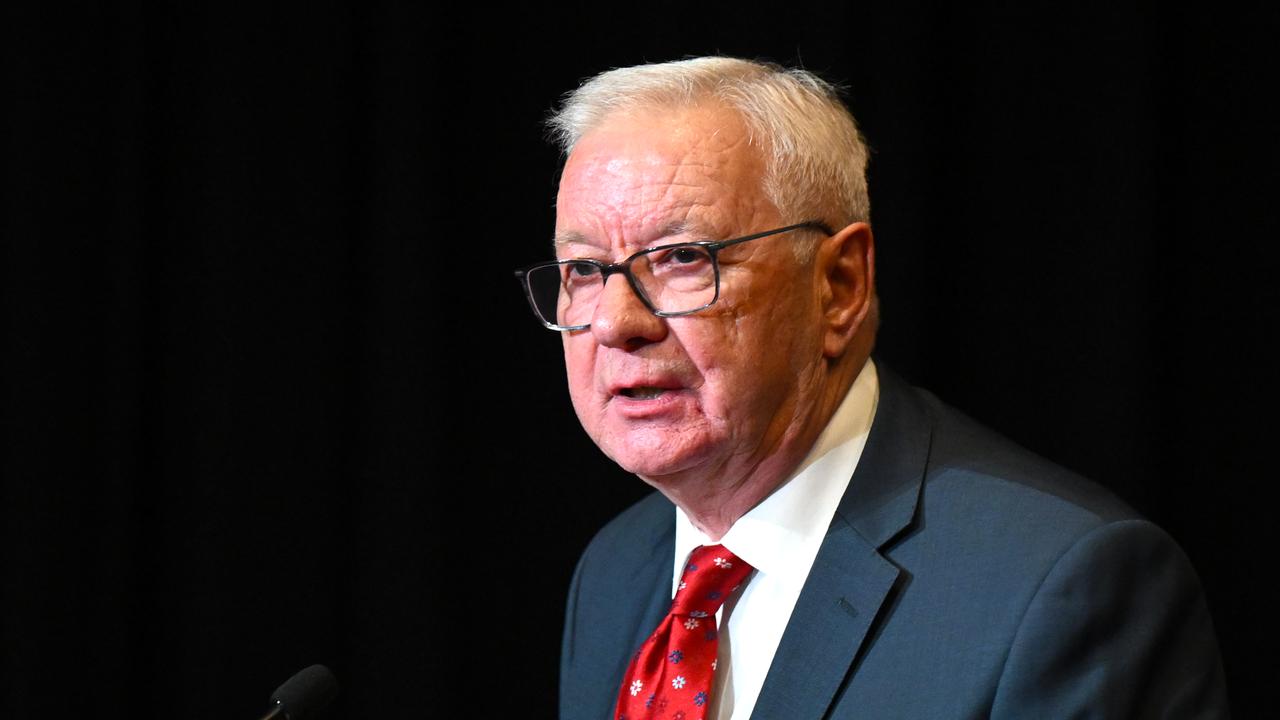
“We should not treat Palestine any differently to any other recognised state in the world and there should be an embassy,” he told AAP.
“If the Israeli government continues to kill innocent Palestinians, Labor has got no choice but to implement stronger and effective sanctions against a government that’s committing genocide.”
Israel rejects that its actions in Gaza amount to genocide, a claim that has also been brought against it before the International Court of Justice.
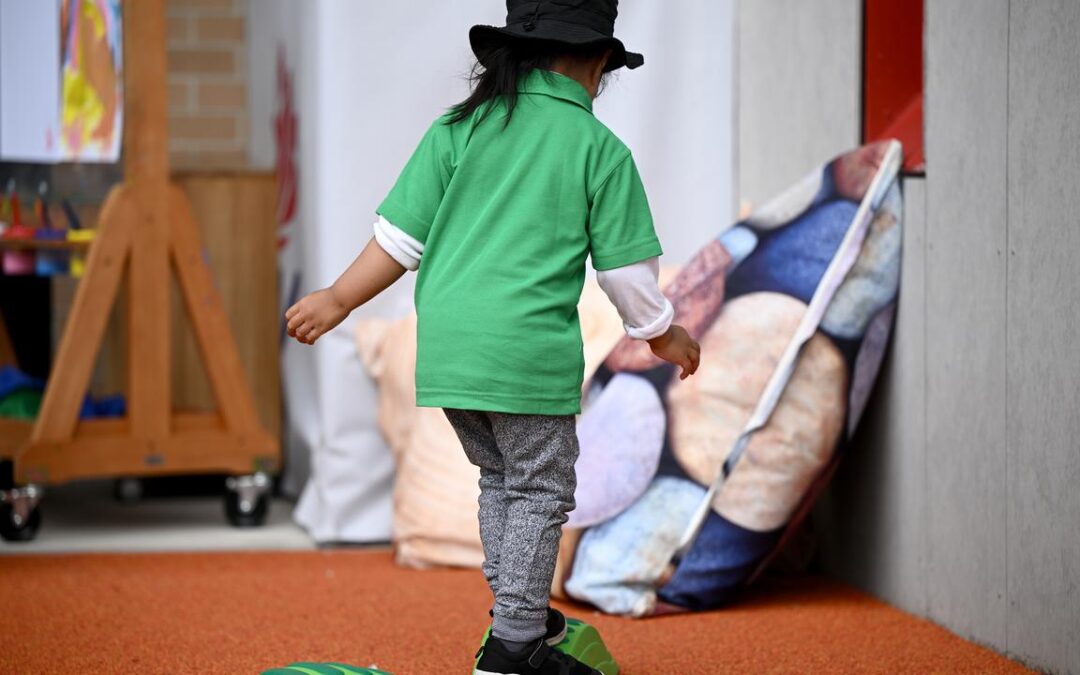
Checks fail as banned childcare staff remain working
Childcare centres are not checking whether their staff are allowed to work with children before hiring, an inquiry has been told.
The revelations of major breakdowns in the safety of 500,000 infants, toddlers and pre-schoolers were exposed on Thursday as working with children’s checks were put under the microscope.
Banned workers were allowed to continue working for years without oversight, the NSW parliamentary inquiry into childcare was told.
Inquiry chair Abigail Boyd said internal government documents showed dozens of workers were banned each year but few children’s checks were cancelled.
In one case, an educator banned in 2019 was approved for a new check in 2021 and continued working up to 2023 before being stopped.
Nearly half of the banned staff reported to the Office of the Children’s Guardian over three years did not even have a check to cancel, Ms Boyd said.
Acting Children’s Guardian Rachael Ward said the childcare regulator was not required to report which staff it has banned, to allow for checks to be cancelled.
“They haven’t broken any law by not sharing that information,” Ms Ward said.
Ms Ward, in the role for five months, was unaware her office had only cancelled 21 checks of the 235 prohibited workers reported between 2021 and 2024.
Meanwhile, police said parents with concerns about staff or incidents involving their children should stop reporting to centre directors because they have a financial incentive to cover up wrongdoing.
One missed case that was highlighted involved a child with a broken leg.
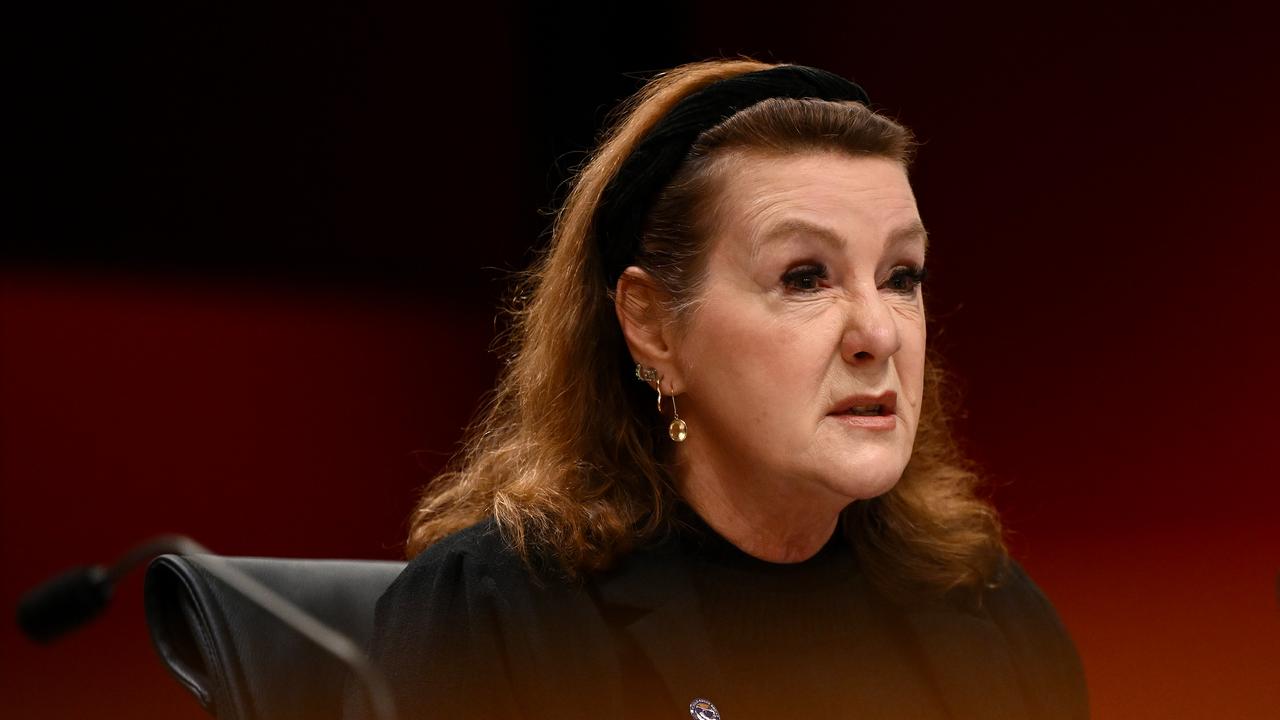
The call for parents to be more proactive in reporting comes as allegations of sexual offences in the childcare sector have increased by almost 50 per cent.
“They’re tipping off the educator or the centre about what’s taken place,” NSW Police Child Abuse Squad commander Linda Howlett said.
There is a “growing safety crisis” in NSW, where more than 400,000 children attended a care service, says nonprofit Body Safety Australia, which educates children on protective behaviours.
It cited a 47 per cent increase in sexual offence notifications to the NSW Office of the Children’s Guardian in 2023-2024.
“Systemic weaknesses have created conditions that can be exploited by individuals seeking to harm children,” the group said in its submission.
“These vulnerabilities are not incidental, they are the result of structural, cultural, and regulatory failures that demand urgent reform.”
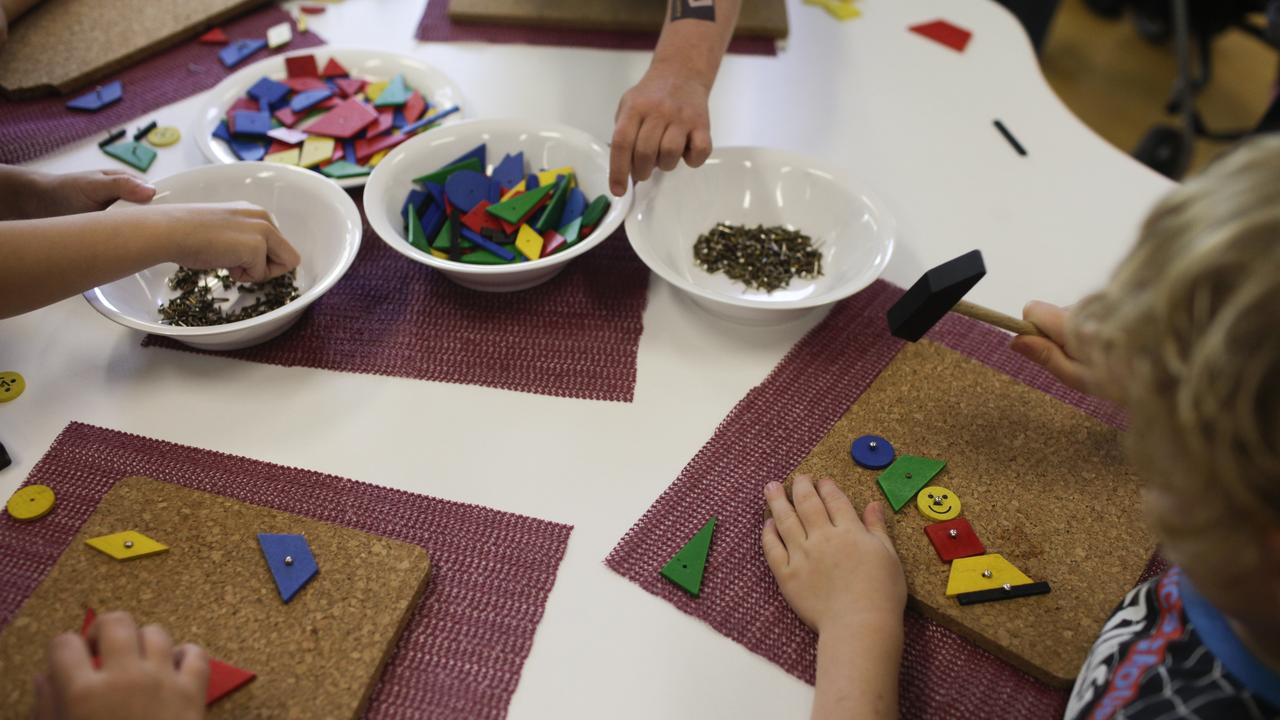
Body Safety Australia listed several gaps offenders had taken advantage of, including workforce instability, inadequate training and qualifications, inconsistent oversight and confusing reporting frameworks.
Acting Early Learning Minister Courtney Houssos said on Wednesday providers that consistently fell foul of quality guidelines were on notice and would have their funding cut under government reforms being considered.
Some of the sweeping changes include installing security cameras in centres, publicising safety issues and imposing bigger fines on dodgy operators.
An independent review by former NSW deputy ombudsman Chris Wheeler in June found the childcare regulator’s performance was hampered by national laws and frameworks.
It was also not “sufficiently transparent” about its investigations, and was less open about its compliance work than counterparts in Queensland and Victoria.
NSW’s childcare regulator sits inside the education department.
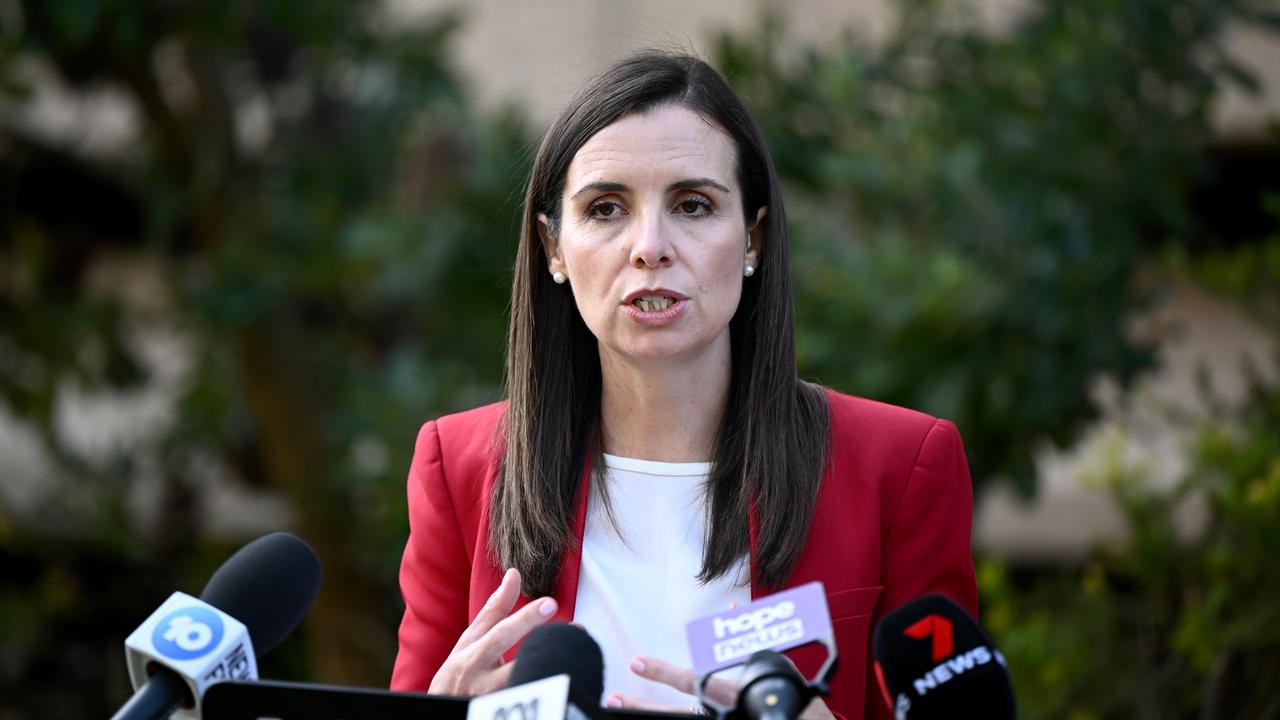
The inquiry comes amid nationwide scrutiny on the regulation and safety of childcare after shocking reports of children allegedly being sexually abused, left restrained in high chairs for hours and receiving substandard meals.
G8 Education, the operator of a centre where educator Joshua Dale Brown allegedly abused children in his care, said in a submission that its staff were struggling emotionally while working through the fallout of the abuse revelations.
Brown is accused of abusing eight children aged under two at a centre in Melbourne between April 2022 and January 2023.
Lifeline 13 11 14
Kids Helpline 1800 55 1800 (for people aged 5 to 25)
1800 RESPECT (1800 737 732)
National Sexual Abuse and Redress Support Service 1800 211 028
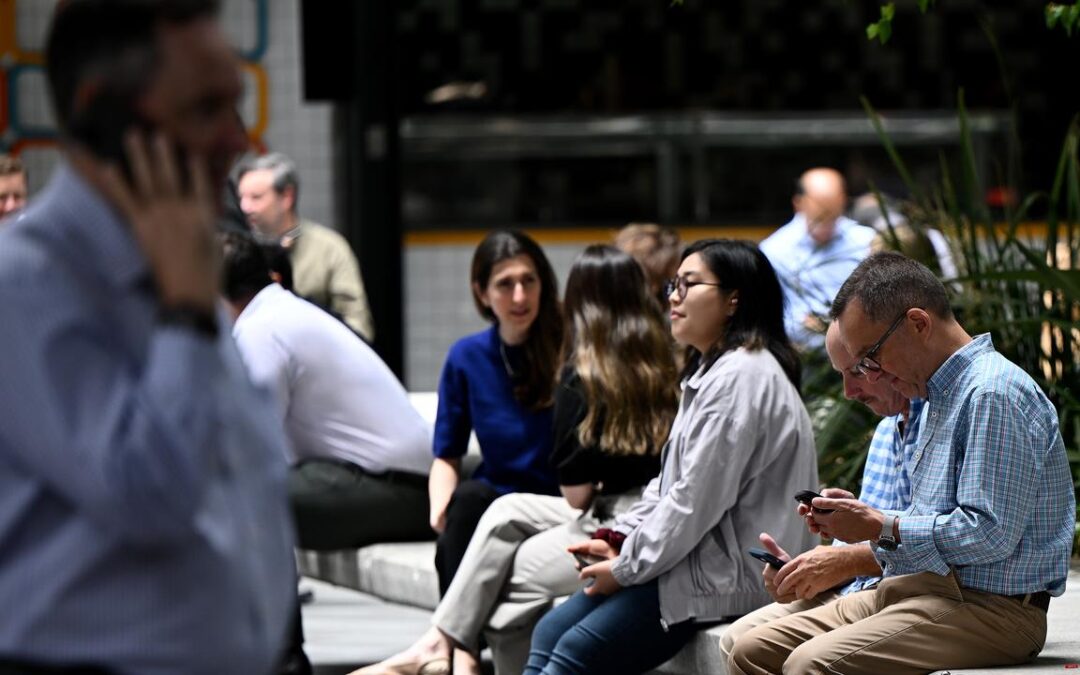
Jobless fall gives RBA room before next rate cut
A modest fall in the jobless rate shows Australia’s labour market is still resilient, giving the Reserve Bank breathing room before it cuts interest rates again.
The unemployment rate edged down to 4.2 per cent in July, the Australian Bureau of Statistics reported on Thursday, while 25,000 jobs were added to the economy.
Both figures were in line with market expectations.
While it was the first fall in the unemployment rate – by one decimal point – since November, the result does not mean the softening in the labour market from recent months has reversed.
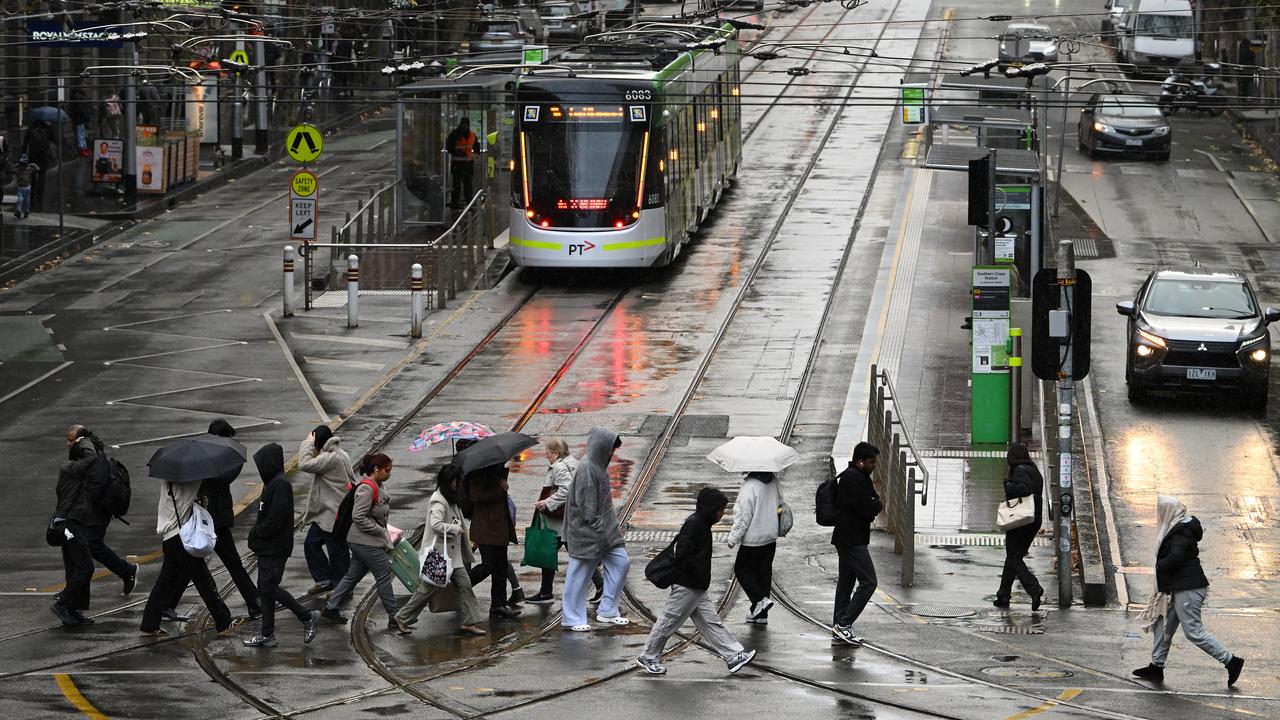
It partly reflected an unwinding of a surprise jump in unemployment in June, which economists noted at the time was partly due to a sub-sample with a higher-than-average unemployment rate being rotated into the survey.
As JP Morgan analyst Tom Kennedy noted, the Reserve Bank is expecting the unemployment rate to reach 4.3 per cent by the end of 2025 and hold until the end of 2027 at least.
“Accordingly we don’t think today’s outcome is significant for short-run policy expectations, but may become more influential later in (the second half of 2025) given the standing forecasts don’t provide much buffer against a more pronounced labour deterioration,” he said.
Before the labour market print, money markets were fully pricing in another interest rate cut by November and their odds were little changed after the data release.
The growth in employment was driven by more women entering the workforce.
Female full-time employment grew by 40,000, double the amount of new male full-time workers, with the female participation rate reaching a record high.
The overall participation rate remained at a relatively high 67 per cent as the number of unemployed people decreased by 10,000.
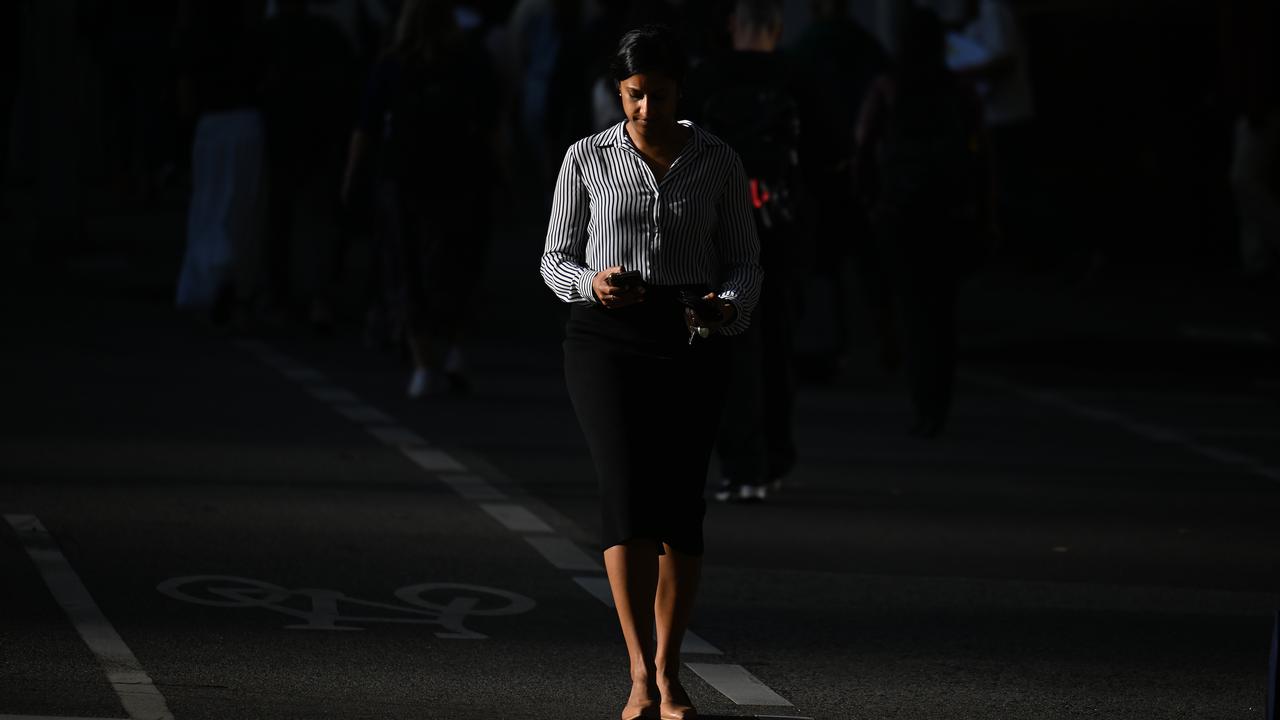
Full-time jobs increased by 60,000, while part-time employment fell by 36,000.
The underlying trend in employment growth has been faster than the rise in population for most of the past year, but in recent months the two were growing at about the same rate, ABS head of labour statistics Sean Crick said.
Overseas arrival data also released by the ABS on Thursday showed net migration was trending up again despite tougher visa requirements and student caps, placing more upward pressure on home prices, AMP economist Diana Mousina said.
The labour market remained resilient, defying a broader slowdown in the economy, Oxford Economics Australia head of macroeconomic forecasting Sean Langcake said.
“But the labour market now appears to be in the early stages of a downturn,” he said.
“Today’s data are reassuring in that they suggest conditions are not deteriorating quickly.”
With no evidence of an impending implosion in the labour market, the Reserve Bank could afford to wait until the next quarterly inflation data in late October, NAB head of markets economics Tapas Strickland said.
“NAB continues to see the RBA cutting rates again in November and February, bringing the cash rate down to 3.1 per cent which we see as broadly neutral,” he said.
RBA governor Michele Bullock noted various indicators suggest conditions in the labour market had eased in recent months.
“There’s some sense in which the labour market is easing,” she told reporters after the central bank cut interest rates by 25 basis points on Tuesday.
“There are some indicators that we think suggest that things are still a little bit on the tight side.
“If we can maintain where we are I don’t think that’s a bad thing.”
Treasurer Jim Chalmers said welcomed the fall in unemployment, coming soon after the interest rate cut and the best growth in real wages in five years.
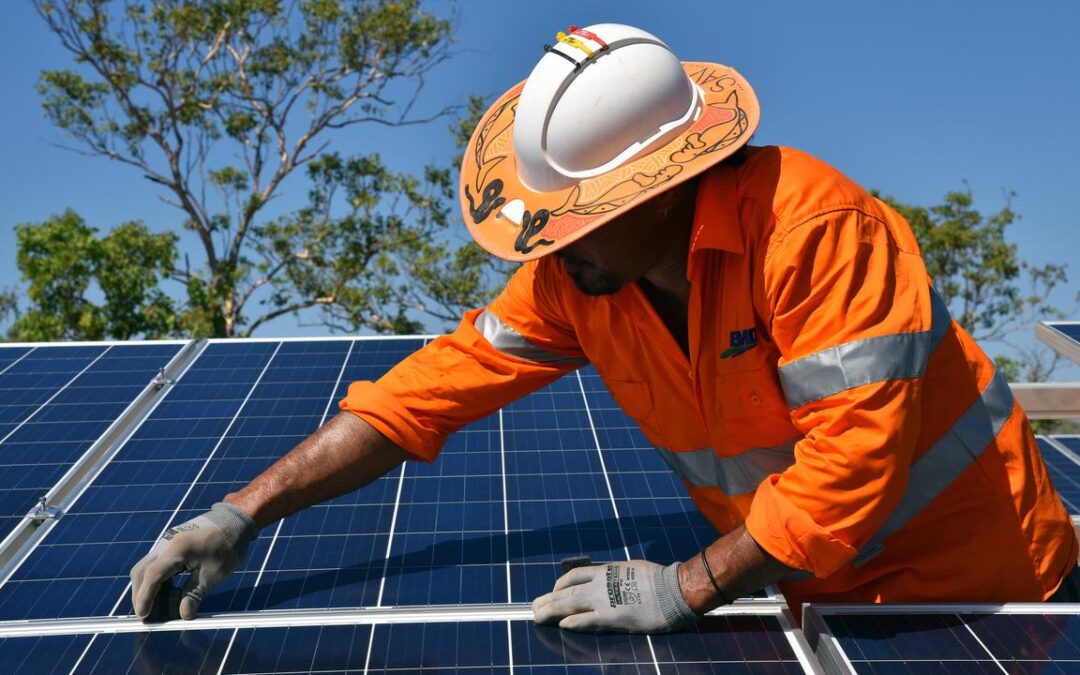
Indigenous communities plug in to power their future
Indigenous people risk being left behind in the clean energy transition without investment in community-led projects, particularly in regional and remote areas.
More than 400 Traditional Owners, industry professionals, academics and government representatives have gathered for the First Nations Clean Energy Symposium on the Sunshine Coast.
They discussed challenges in the sector as well as examples of community-led projects which are leading the clean energy transition.
One of the newest, with ground breaking on the project just a week ago, is a battery project in the central-west NSW town of Wellington.
The local Wiradjuri community, through the newly formed Wambal Bila corporation, have struck a deal with renewable energy company AMPYR Australia, giving them a right to take long-term equity ownership in the $340 million project.
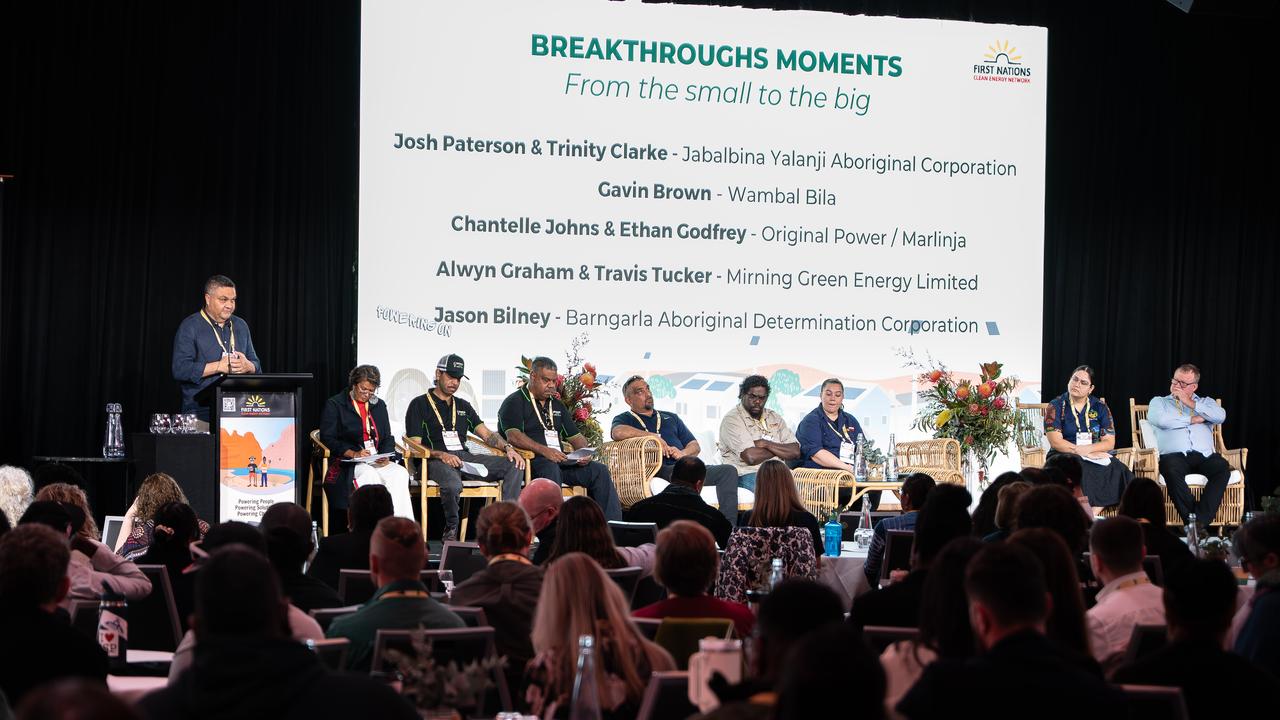
Wambal Bila director Gavin Brown said the deal, which gives the community the option of a five per cent equity stake, came about after AMPYR approached Traditional Owners to get involved.
Rather than short-term outcomes such as jobs or training, the project could benefit the community for decades, Mr Brown said.
“This is something that’s more closely aligned with cultural values,” he told AAP.
“You’re not digging up the land. It’s renewable, it’s a great alignment.”
AMPYR Australia chief executive Alex Wonhaus said the company wanted to go the “extra mile” to ensure it was working with the community.
“One of the biggest risks to the energy transition is actually we’re failing to bring the local communities along including, but frankly not limited to, First Nations communities,” he said.
“We as an organisation really wanted to do something which is much better than the bare minimum.”
First Nations Clean Energy Network co-chair Karrina Nolan said without investment, Indigenous people risk being left out of Australia’s move toward renewables.
“We’ve got people living in social and rental housing that can’t keep the lights on, we’ve got 15,000 people across the country on prepaid meters that are disconnected every couple of weeks,” she told the symposium.
The woes of unreliable power are a reality known all too well in the community of Wujal Wujal in Queensland’s far north.
Following heavy rain and flooding from Tropical Cyclone Jasper in late 2023, the entire 300-strong population of Wujal Wujal had to be evacuated, the community was without power for months and residents could only return a year later.
Despite the devastation, the community used the event to realise a 30-year dream – starting work on a solar and battery microgrid.
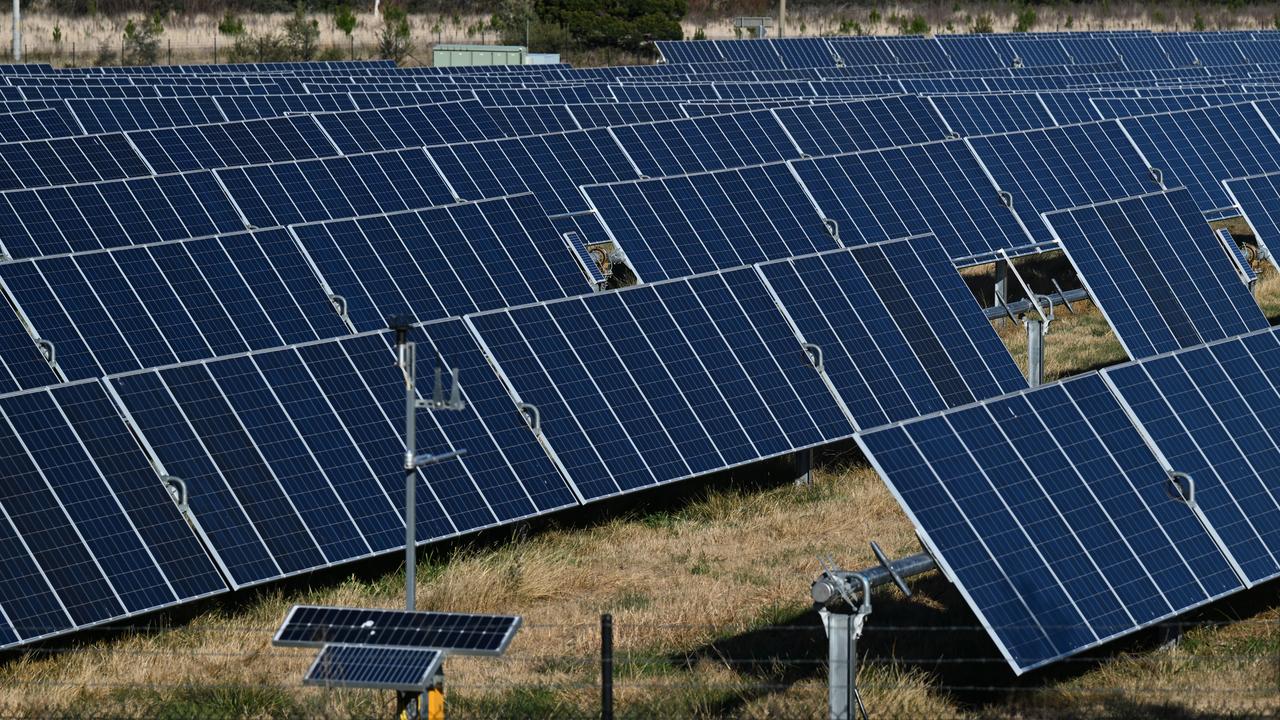
In many remote Indigenous communities, power is paid for using rechargeable cards, which Wujal Wujal resident Trinity Clarke said could mean periods without electricity for households.
“It’s to not have to rely on shoddy power cards, to have reliable power, which impacts our white goods, impacts the food a family can store in their freezers,” Ms Clarke said.
The system is set to be completed in 2027, she said.
Prime Minister Anthony Albanese recently announced $70 million for Indigenous clean energy projects.
Ms Nolan said Indigenous communities wanted to help lead energy projects.
“It’s clear that now is the time to invest in First Nations communities and support access to capital and the resources needed,” she said.
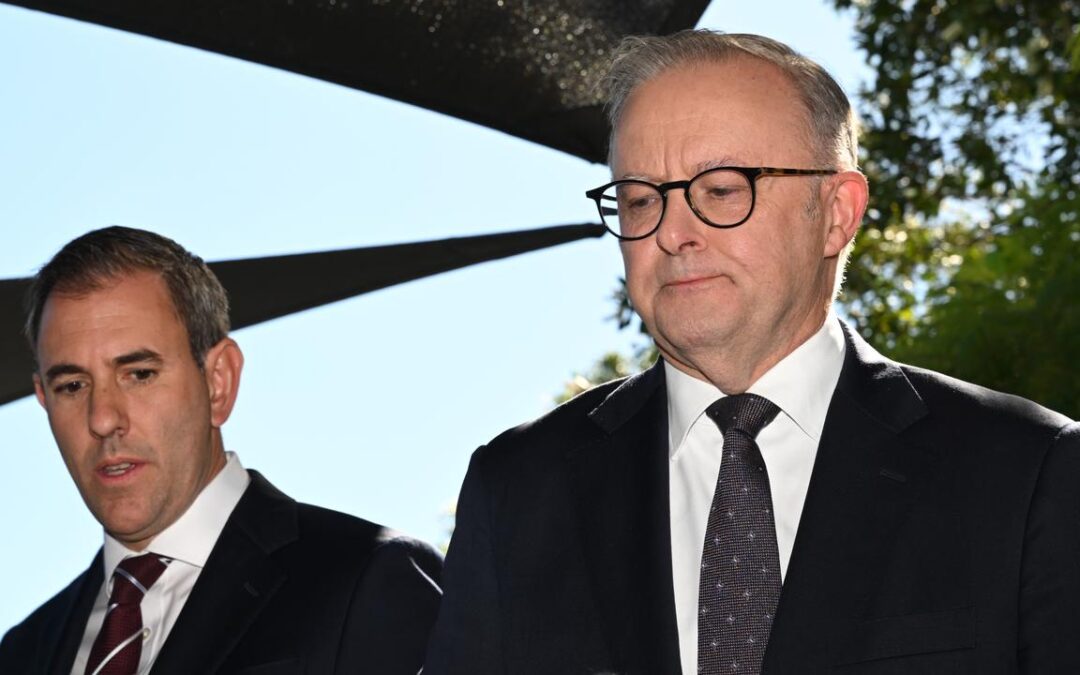
‘Not a fix’: PM responds after summit document leaked
The prime minister has dismissed suggestions outcomes from an upcoming economic summit have been pre-determined after a leaked document revealed a list of recommended results.
Ahead of Tuesday’s productivity roundtable, the Treasury advice reportedly showed a list of proposals to be reviewed by cabinet after the meeting of business, union and other leaders.
Among them were proposals to speed up approval times for housing and reduce environmental red tape, according to the ABC.
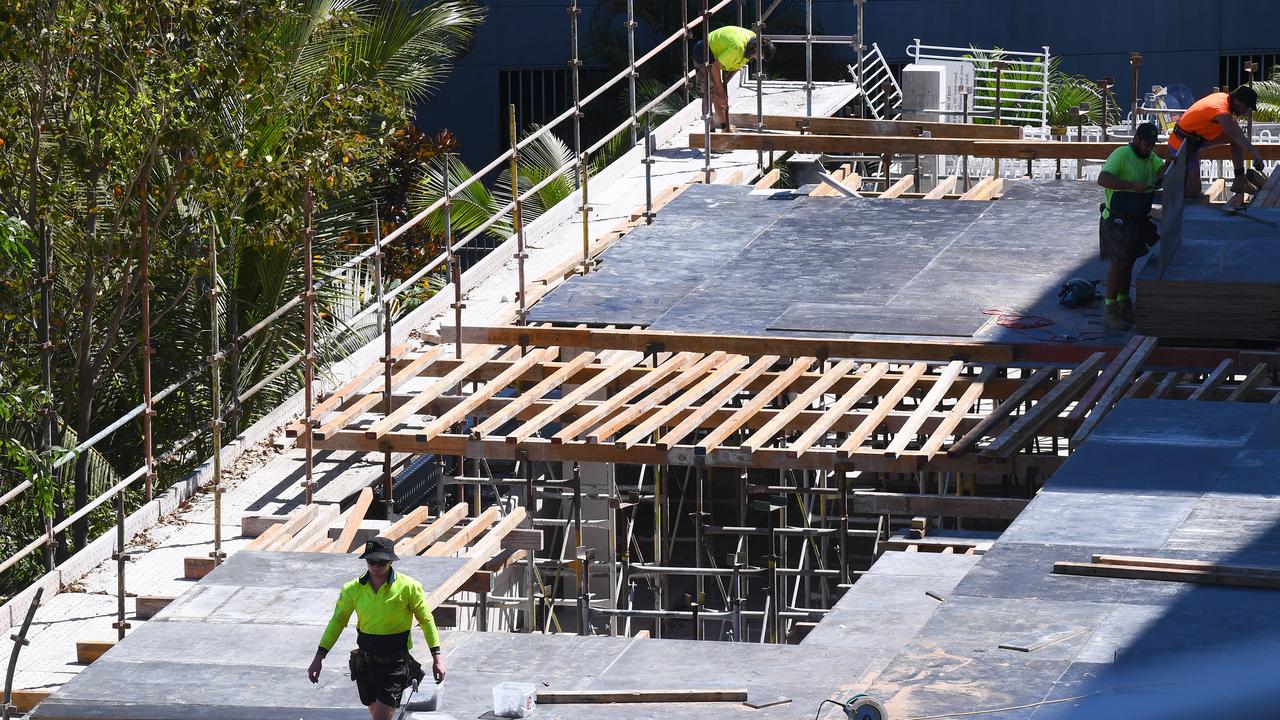
But Prime Minister Anthony Albanese denied the result of the summit had been locked in before it began.
“You’d expect Treasury to be giving advice about a forum that’s about the economy,” he told reporters in Brisbane on Thursday.
“Next week, though, is an opportunity for people to advance their ideas, to advance policies, and that’s a really constructive thing.”
The government has already ruled out major changes in some areas, including tax policies, ahead of the three-day summit despite calls for widespread reform to bolster the country’s lagging productivity rates.
The prime minister said the government was up for a range of reforms stemming from the summit.
“There’ll be some things that are put forward that can be done immediately, some things can be the result of legislation, some things will feed into next year’s budget,” he said.
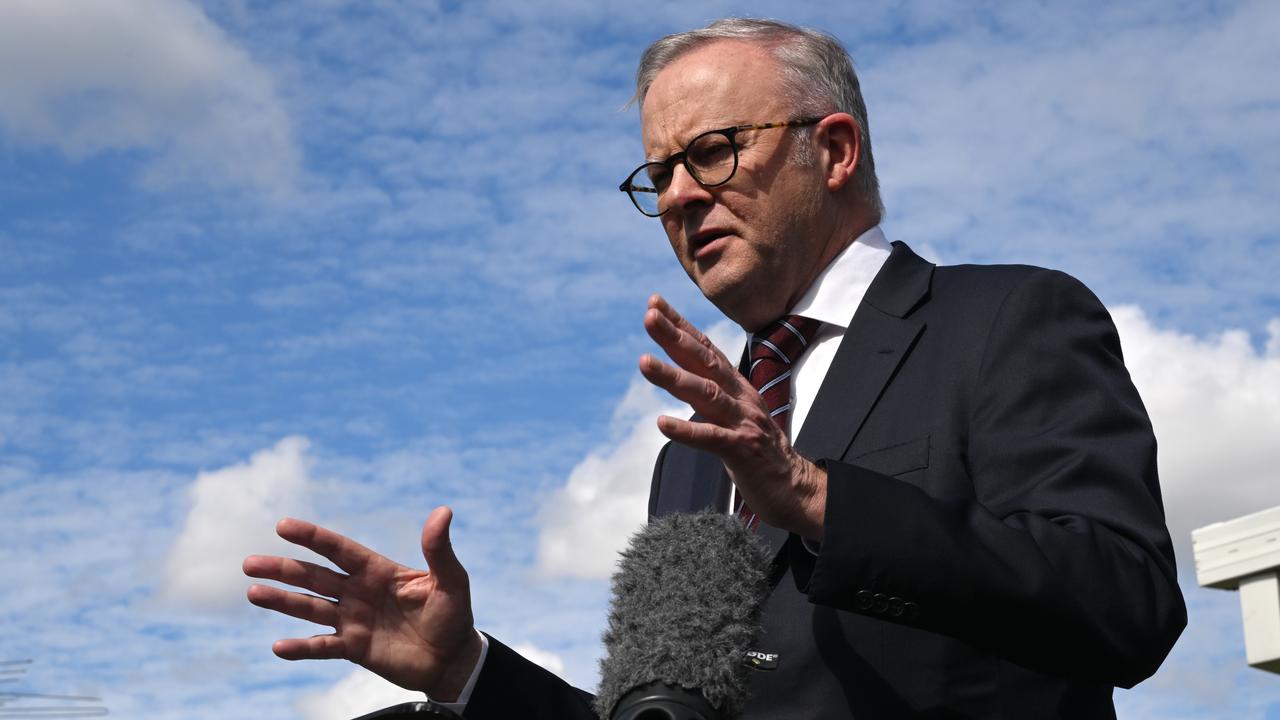
Treasurer Jim Chalmers also dismissed concerns the summit’s outcomes had been pre-empted.
“Those that have been reported today are just a few of the many ideas which have been put to us and they’re all welcome on the table,” he said.
Opposition Leader Sussan Ley said the coalition would examine suggestions from the roundtable, but it had concerns about how the event was being handled.
“I wonder whether people who are attending this roundtable are indeed wasting their time,” she said.
“What we won’t do is accept an agenda that raises taxes on hardworking Australians, particularly because that’s exactly what the government promised it would not do.”
The leak came as the Productivity Commission released its final report ahead of the summit, calling for sweeping reforms for Australia’s care system.
The body called for a national screening system for care workers, greater collaboration between health services and a major shift towards preventive health investment.
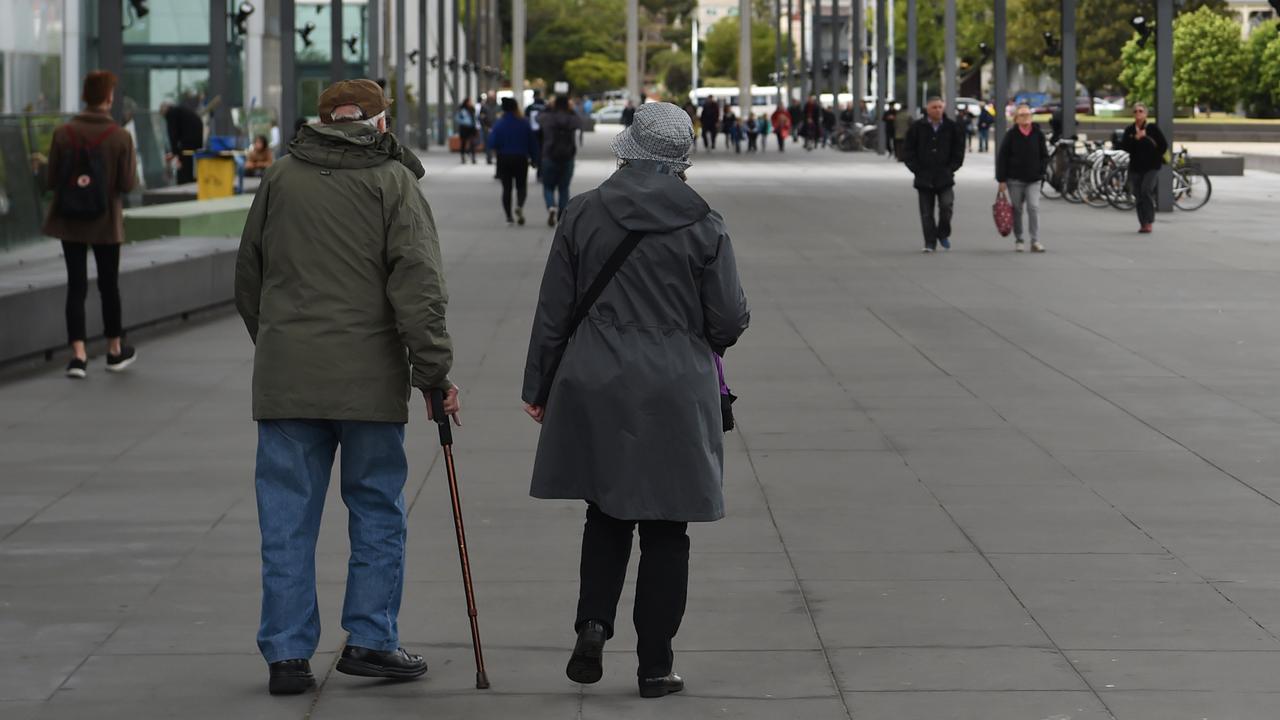
Commissioner Alison Roberts said care was a rapidly growing sector and proposed reforms would seek to break through the government’s siloed approach to decision-making.
The interim report urges the government to better align quality and safety regulations across the care economy.
That could include a streamlined national clearance process for workers in aged care, the NDIS, veterans’ care and the early childhood education sector.
Such a system would make it easier for workers to move between care sectors and cut down on paperwork from providers.
“We don’t have a joined up system, which means people can move from state to state or within the sector to another (workforce) and avoid detection,” Dr Roberts said.
“Greater oversight and joined up systems will reduce this risk of occurring.”
The interim report also recommends the establishment of a national framework to support investment in prevention.
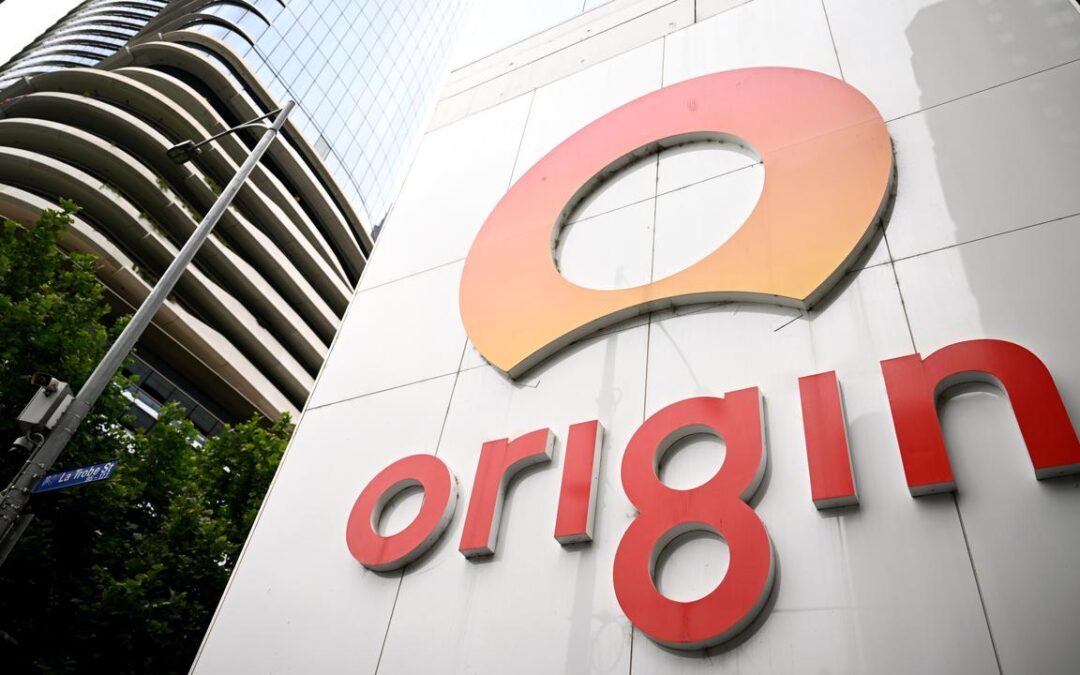
Liquid gas investment inflates Origin Energy’s profit
Returns are rising for Australia’s largest electricity and gas retail business, with Origin Energy reporting an underlying profit up by more than 25 per cent and guidance that gas earnings will continue to rise.
But the company’s results for the 2024/25 financial year, released on Thursday, also showed earnings from its electricity business fell by $224 million due to higher coal prices and lower retail tariffs.
The results come amid heightened attention on Australia’s energy market, following a federal election fought over nuclear power and continuing debate over net-zero targets and investments in renewable energy projects.
Origin Energy reported an underlying profit of $1.49 billion, up by $370 million on last year, and delivering shareholders a dividend of 30 cents per share, up from 27.5 cents.
The company’s profit was helped significantly by its stake in Australia Pacific LNG, chief executive Frank Calabria said, as the natural gas producer delivered $797 million in fully franked dividends.
“Origin’s financial and operational performance in FY25 underscores the strength of our portfolio, as forecast lower earnings from energy markets and Octopus Energy were balanced by higher earnings from integrated gas relating to (liquid natural gas) trading,” he said.
Despite its higher profit, Origin Energy’s earnings before interest, taxes, depreciation and amortisation fell by $117 million, and its gross profit from electricity dropped by $224 million.
The falls were blamed on higher coal prices and lower retail tariffs and came even though the company added 104,000 customers during the year.
Its investment in UK provider Octopus Energy also delivered an $88 million loss due to large investments.
Origin Energy would continue to invest heavily in renewable energy projects, Mr Calabria told investors, including batteries at its Eraring and Mortlake sites, and the Yanco Delta Wind Farm in NSW’s Riverina region.
However, its plans for capital expenditure would depend on the future of its coal-fired Eraring Power Station, he said, which the company had agreed with the NSW government to operate until 2027.
“Our job really here is to navigate this transition effectively for customers and shareholders and what we’re really looking at is how do you continue to allocate capital wisely in a market that has uncertainty,” he said.
“We are preparing for a variety of scenarios to be ready to execute on those but the final decisions of both timing and choice will be determined by a range of factors.”
Origin predicted its future underlying earnings should reach between $1.4 billion and $1.7 billion in the coming financial year, with electricity gross profit stabilising while profits from gas improved “moderately”.
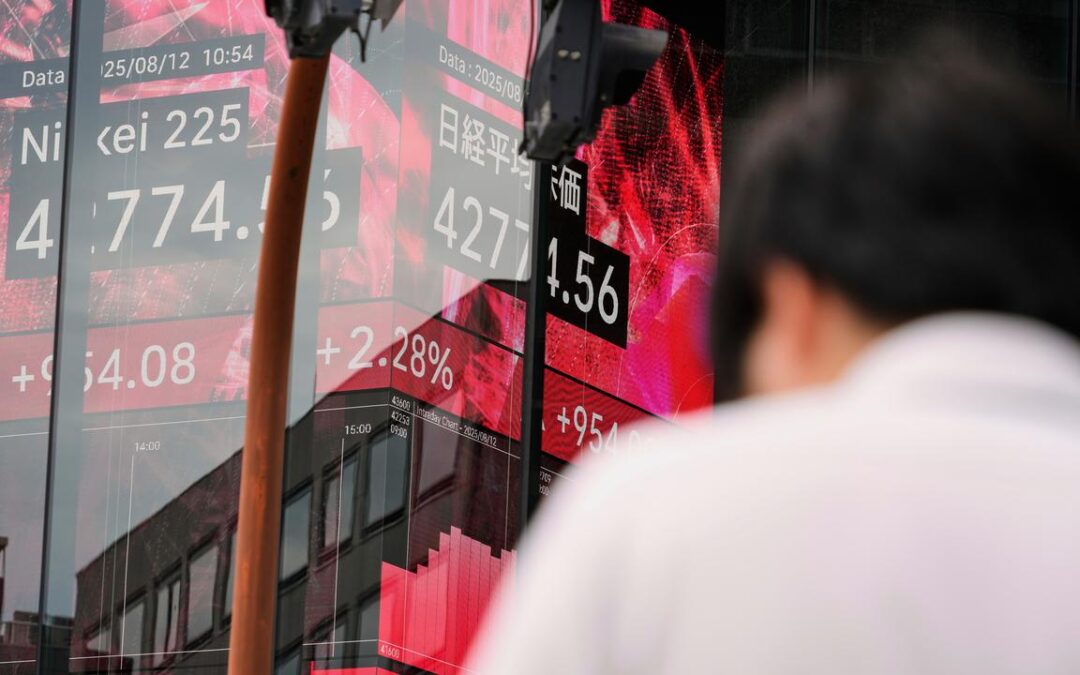
Rate cut drumbeat pegs back dollar, Asia stocks breathe
The US dollar was under pressure on Thursday as traders piled into wagers that the Federal Reserve will resume cutting interest rates next month, powering Bitcoin to a record high, while a blistering rally in regional stocks took a breather.
MSCI’s gauge of equities in Asia excluding Japan nudged higher and lingered near its loftiest level since September 2021, taking cues from Wall Street, where the S&P 500 and Nasdaq indexes hit new closing highs for the second straight day.
The MSCI All Country World Index rose to a record high for the second straight session on Wednesday.
Japan’s Nikkei fell after a searing six-day rally that boosted it past the 43,000 mark for the first time. Shares in Korea and Taiwan were slightly lower as well. China’s blue-chip stock index and shares in Hong Kong gained.
The dollar fell to a two-week low against a basket of major peers on shifting expectations of US rate cuts, with comments from the US Treasury Secretary also helping bolster expectations of an outsized 50 basis point cut.
The Japanese yen hit a three-week high of 146.38 per dollar in early trading.
Treasury Secretary Scott Bessent said on Wednesday that an aggressive half-point cut was possible in September after revised labour market data from last week showed that job growth had slowed sharply in May, June and July.
Goldman Sachs said on Wednesday in a research note it expects the US Federal Reserve to deliver three 25-basis-point interest rate cuts this year and two more in 2026.
Traders are pricing in certainty of a rate cut in September with odds of a 50 bps cut rising to seven per cent, up from zero a week earlier.
While a tame US inflation report this week boosted the case for rate cuts, some analysts have cautioned against market complacency, saying that upcoming data may alter expectations.
“We’re not as convinced of a 25bp FOMC rate cut in September as financial markets, let alone a 50bp rate cut,” said Carol Kong, economist and currency strategist at Commonwealth Bank of Australia.
“There will be another CPI and payrolls report ahead of the September meeting that can make or break the case for a rate cut,” Kong said.
Optimism on monetary policy easing in the world’s largest economy also powered cryptocurrency bitcoin to an all-time high of $US124,002.49 ($A189,445.91) with analysts also pointing to recent financial sector reforms as a tailwind for the asset class.
Bitcoin has risen 32 per cent so far in 2025, and the second largest cryptocurrency, Ethereum, has climbed 41 per cent and is hovering just shy of its all-time high hit in November 2021.
In commodity markets, gold prices rose 0.5 per cent to $US3,371 ($A5,150) and crude oil prices edged up after hitting a two-month low on Wednesday as investors kept their focus on the summit between US President Donald Trump and Russian leader Vladimir Putin on Friday.
Trump on Wednesday threatened “severe consequences” if Putin did not agree to peace in Ukraine but also said that a meeting between them could swiftly be followed by a second one that would include Ukrainian President Volodymyr Zelenskiy.
In the past, Trump has said both sides will have to swap land to end fighting that has cost tens of thousands of lives and displaced millions.
“While lack of progress towards a ceasefire may lead to renewed threats of secondary oil tariffs/sanctions, we see limited risk of large disruptions in Russia supply,” analysts at Goldman Sachs wrote in a note.
Large volumes of Russian exports, the possibility of deepening price discounts to maintain demand, and the likely eagerness of key buyers India, and especially China, to continue energy cooperation with Russia are expected to avert major disruptions, they said.
Trump signed an executive order last week levying an additional 25 per cent tariff on India’s exports to the US, saying that the country directly or indirectly imported Russian oil. He has also hinted at similar tariffs on China.
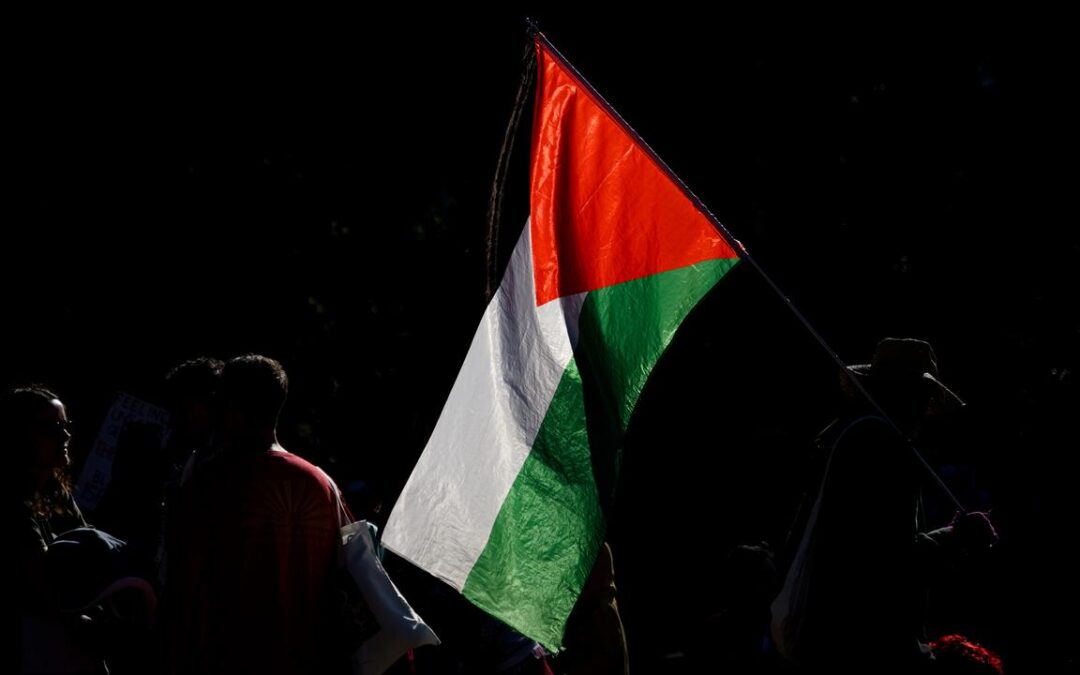
Labor insists no Palestine role for Hamas after praise
Australia’s recognition of Palestine will still be dependent on Hamas having no role in a future state, a senior minister insists, despite the terror organisation praising the government’s move.
Hamas co-founder Hassan Youssef has praised the government’s “political courage” after Prime Minister Anthony Albanese announced plans to recognise Palestinian statehood at a United Nations meeting in September.
The prime minister previously said Hamas would be opposed to the recognition decision, which was also dependent on the future Palestinian government recognising an Israeli state.
Several of Australia’s allies, including the UK, Canada and France, earlier revealed plans to make a similar announcement before the UN.
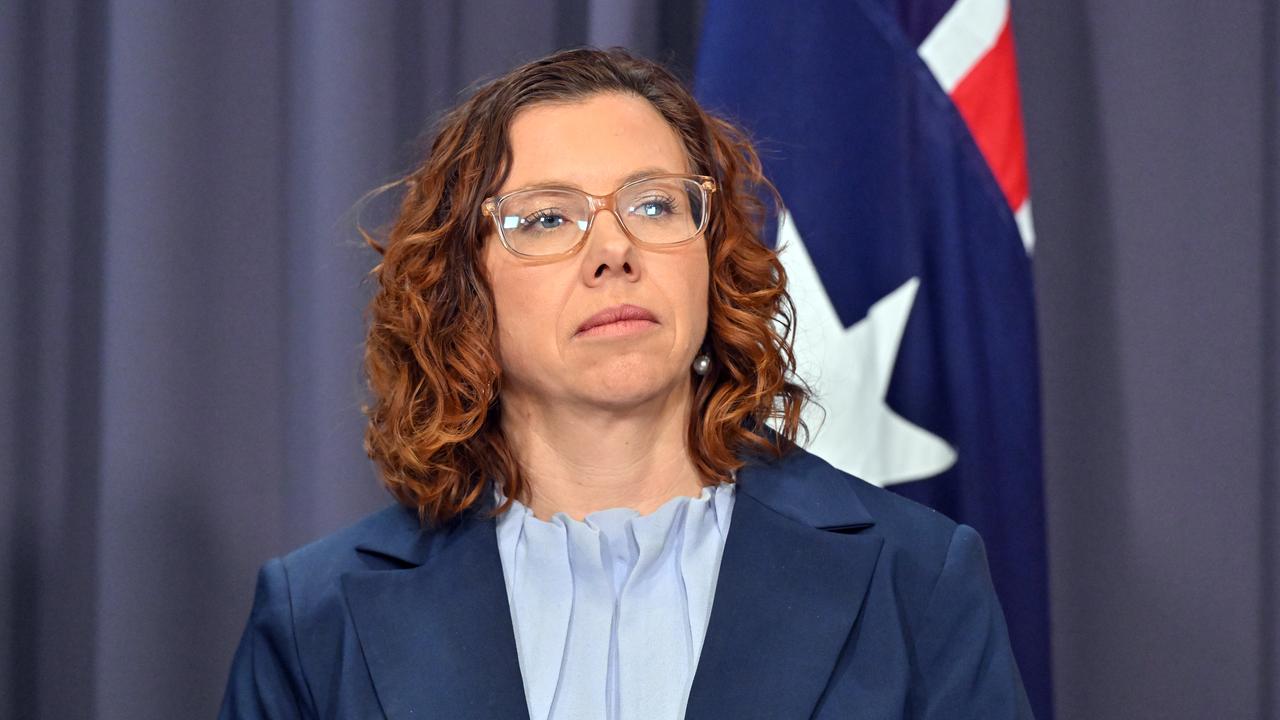
Senior minister Amanda Rishworth dismissed the comments from Hamas after opponents of Australia’s move seized on them as proof the government had got it wrong.
“There is no role for Hamas in a future Palestinian state, the international community is clear on that,” she told Seven’s Sunrise program on Thursday.
“The way to sideline Hamas is not to continue to see the cycle of violence happening, it is actually to create two states that are secure in their borders.”
But Opposition Leader Sussan Ley said the reaction from Hamas, a listed terrorist organisation in Australia, showed the recognition move was a serious misstep
“When terrorists are cheering your foreign policy, you have got it wrong,” she told Sydney radio station 2GB.
“The prime minister is making a complete mess of this. He’s right out of his depth.”
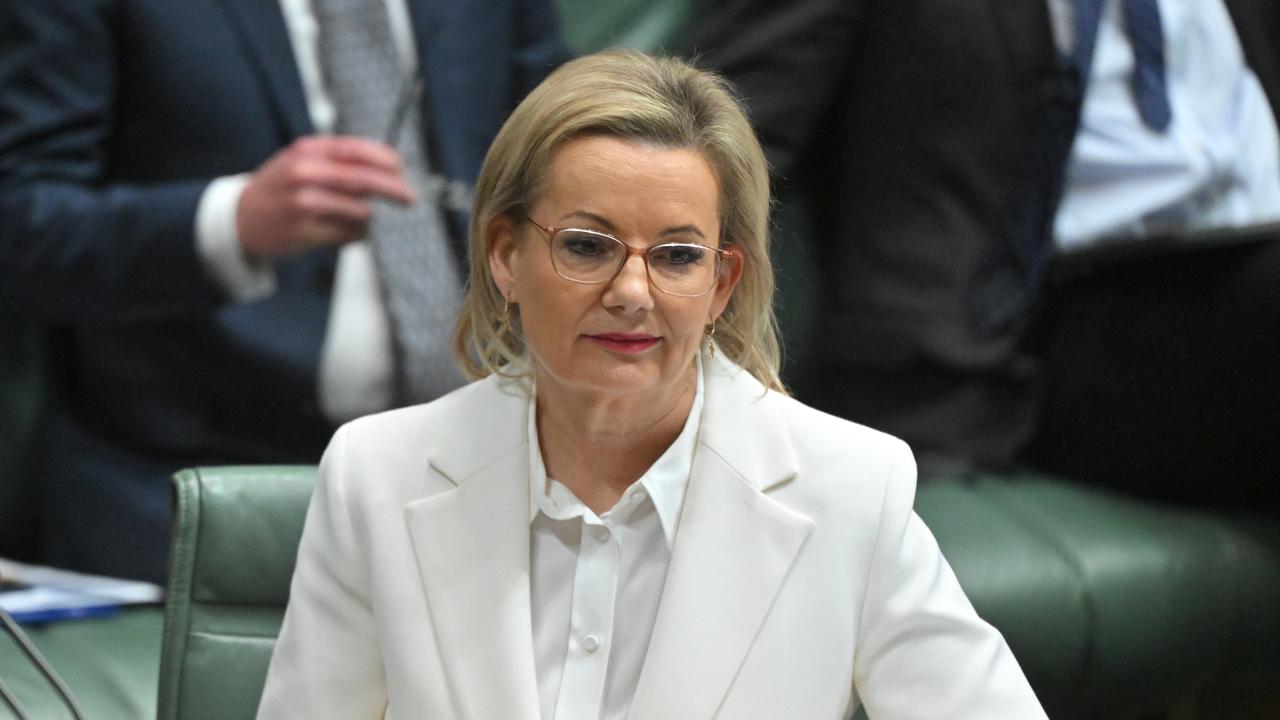
The coalition has pledged to reverse Australia’s position if it wins the next election.
Opposition Israeli parliamentarian Shelly Tal Meron said she was also concerned about Hamas’s reaction to the push for Palestinian recognition.
“When Hamas representatives, who are members of a terror organisation, are congratulating the Australian government, it’s a problem,” she told ABC Radio.
“Basically what we’re saying is you can invade a sovereign country, a democratic, Western, liberal country, and you can kill so many civilians and you’ll be rewarded for that.
“That’s the wrong message to send to the world.”
The latest outbreak of war in Gaza began when Hamas attacked Israel on October 7, 2023, killing 1200 people and taking about 250 hostage.
Israel’s military response has since killed more than 61,000 people, according to Gaza health authorities.
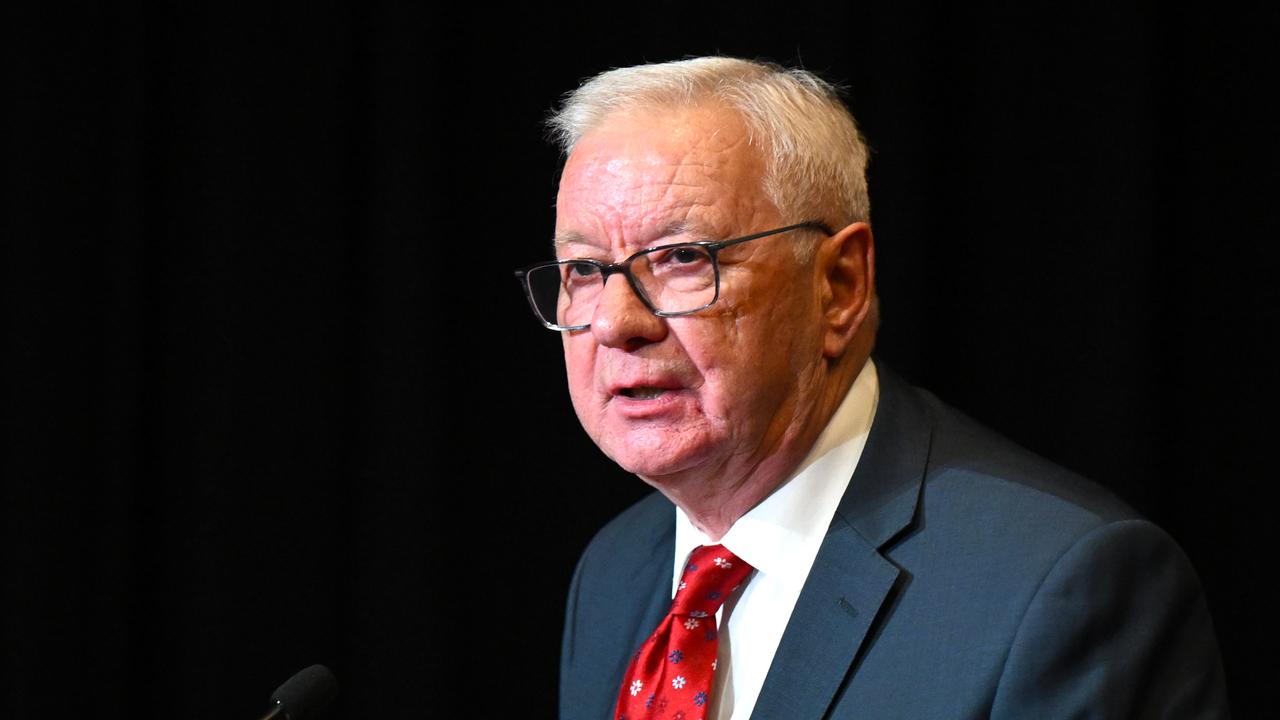
Australia has also been urged to provide more support to Gaza relief efforts as Labor faces grassroots pressure over the war in the Middle East.
Former Labor senator and left-faction heavyweight Doug Cameron said the government should do all it can to support a Palestinian state, including aiding reconstruction efforts when the conflict ends.
“We should not treat Palestine any differently to any other recognised state in the world and there should be an embassy,” he told AAP.
“If the Israeli government continues to kill innocent Palestinians, Labor has got no choice but to implement stronger and effective sanctions against a government that’s committing genocide.”
Israel rejects that its actions in Gaza amount to genocide.
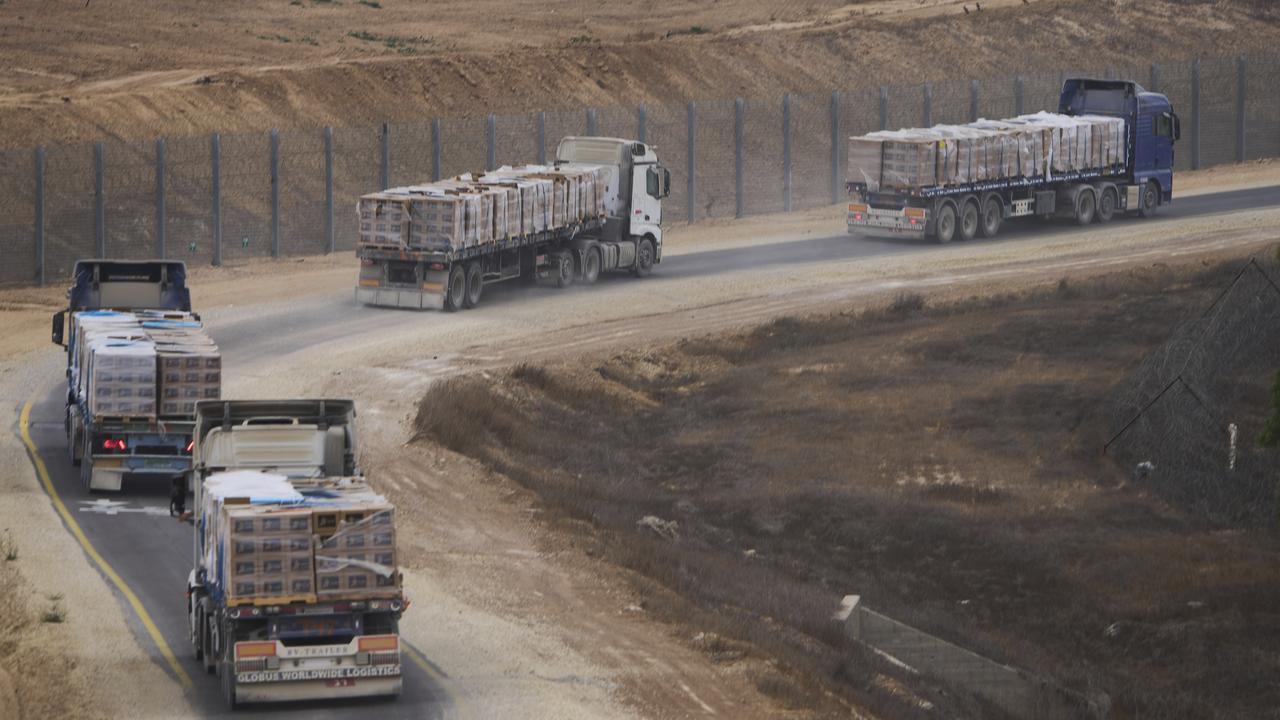
Independent senator David Pocock said further action needed to be taken against the Israeli government, including its prime minister Benjamin Netanyahu over actions in Gaza..
“We’re seeing women and children starving and more needs to be done,” he told Nine’s Today program.
“I think there should be targeted sanctions on Netanyahu and his government.”